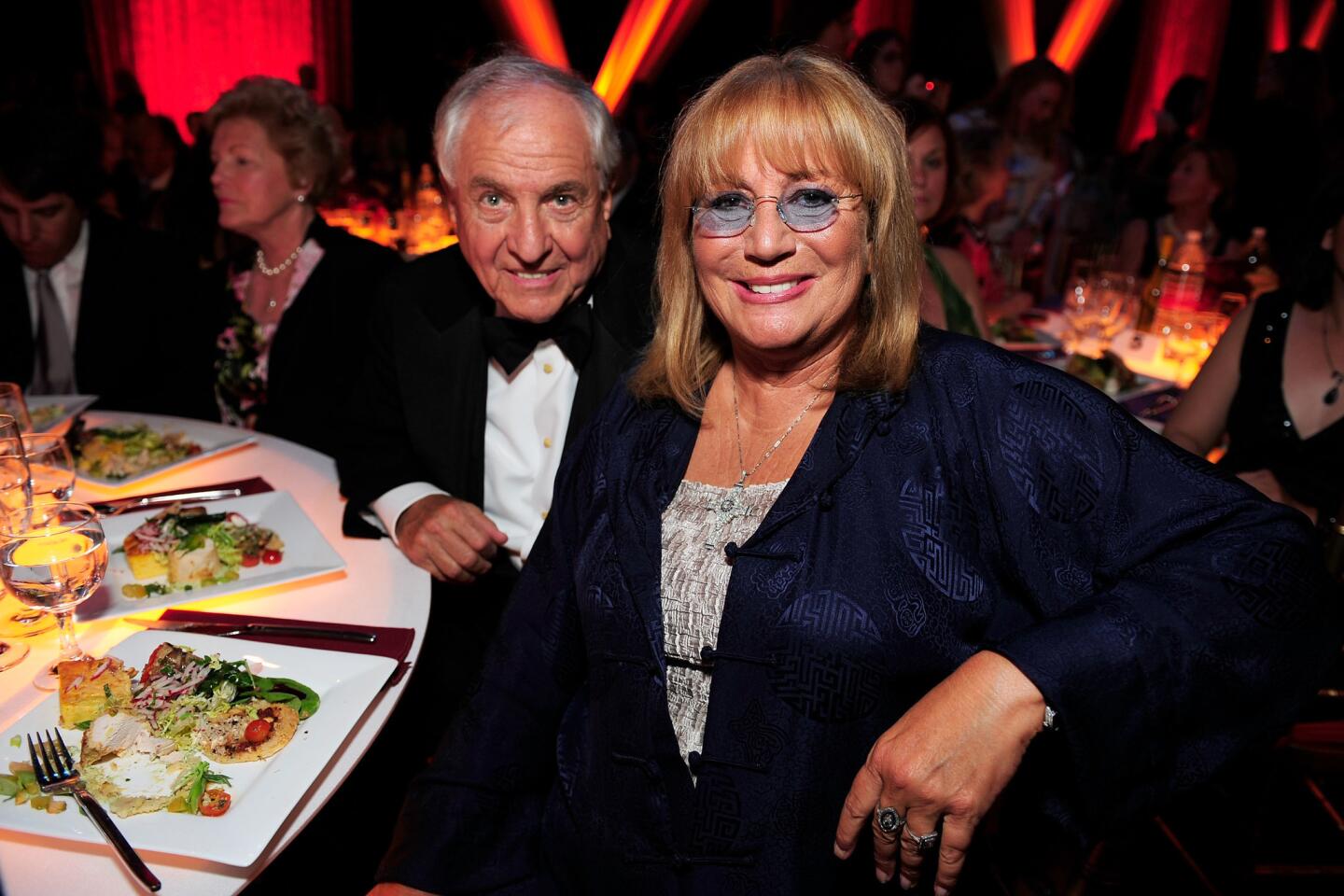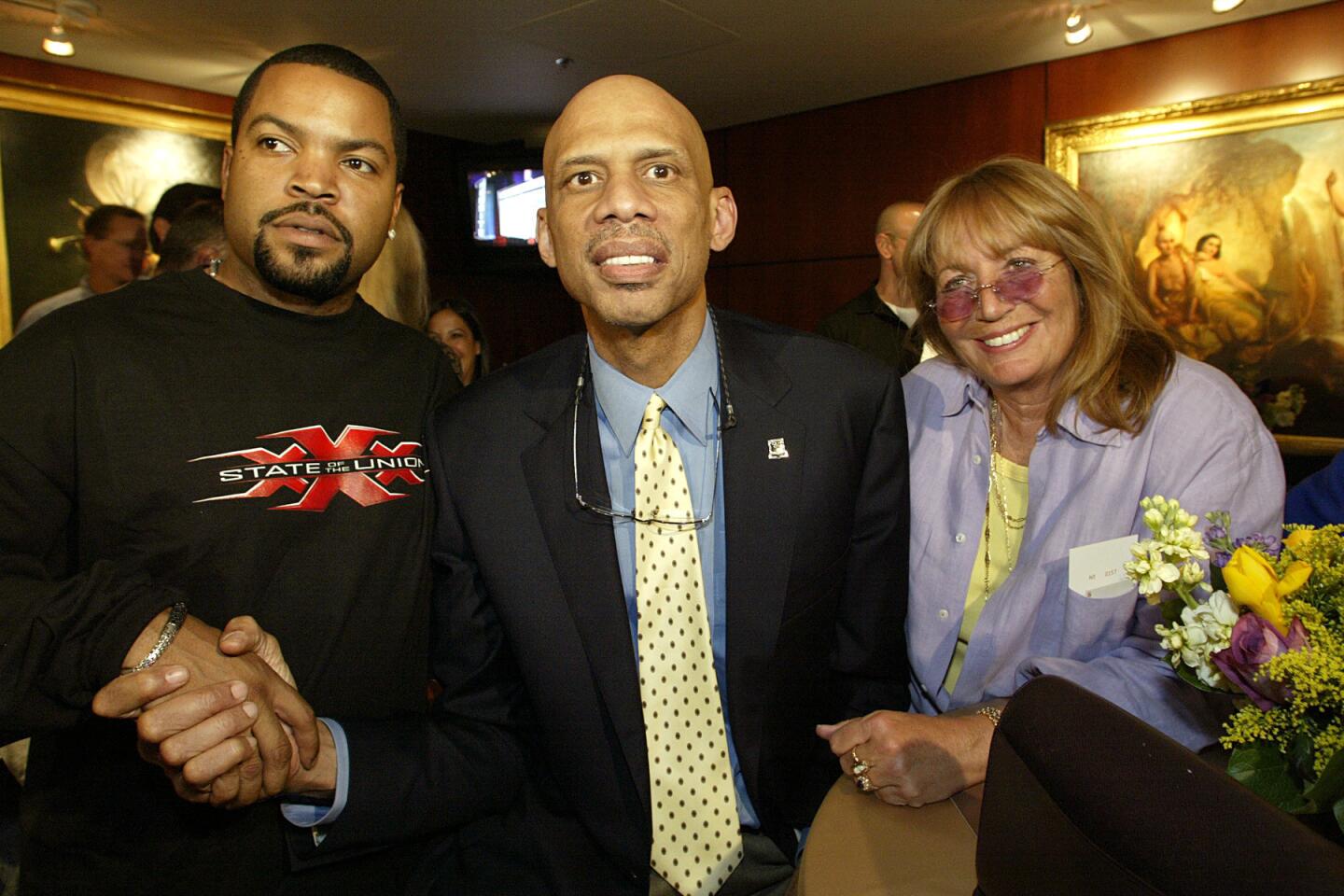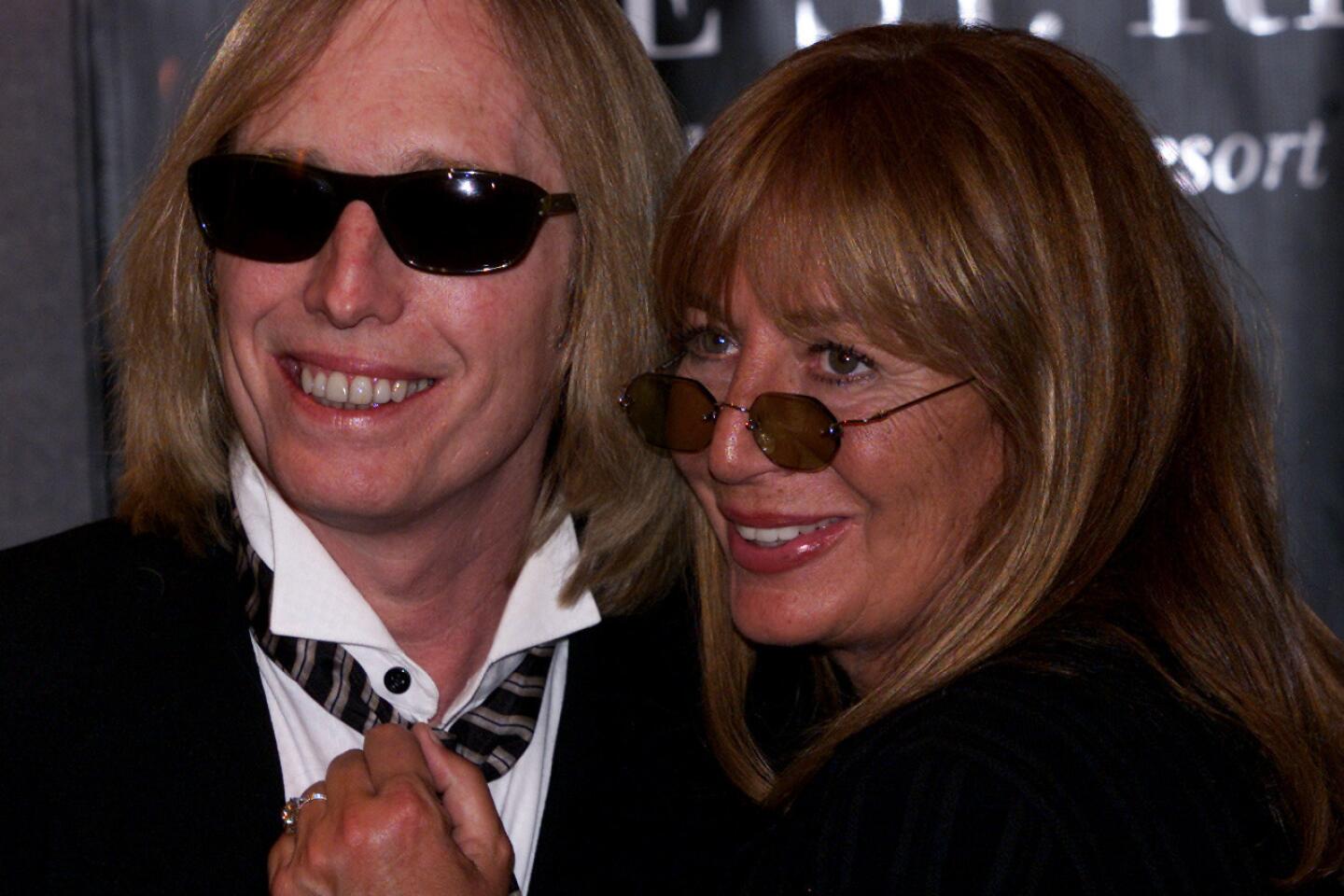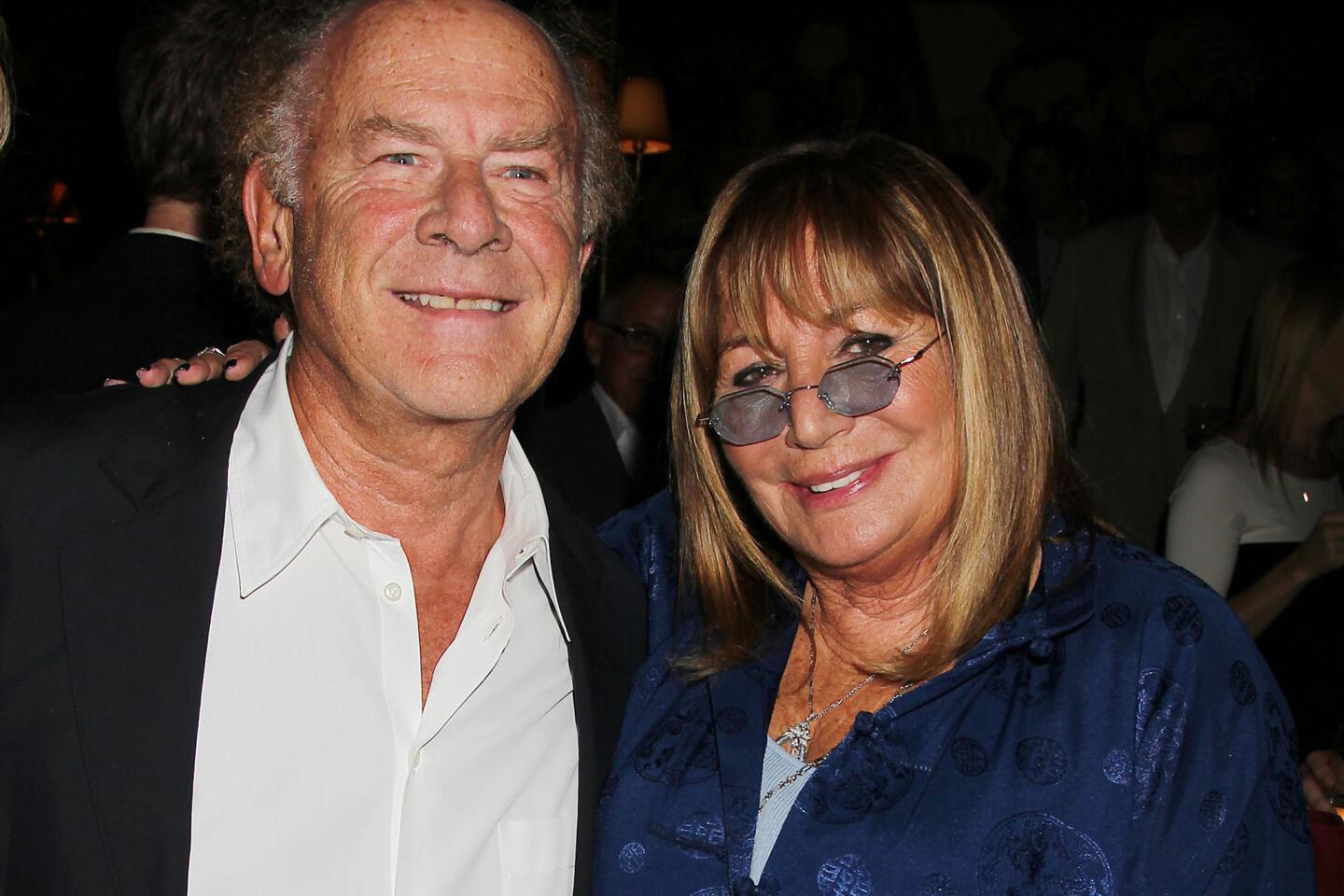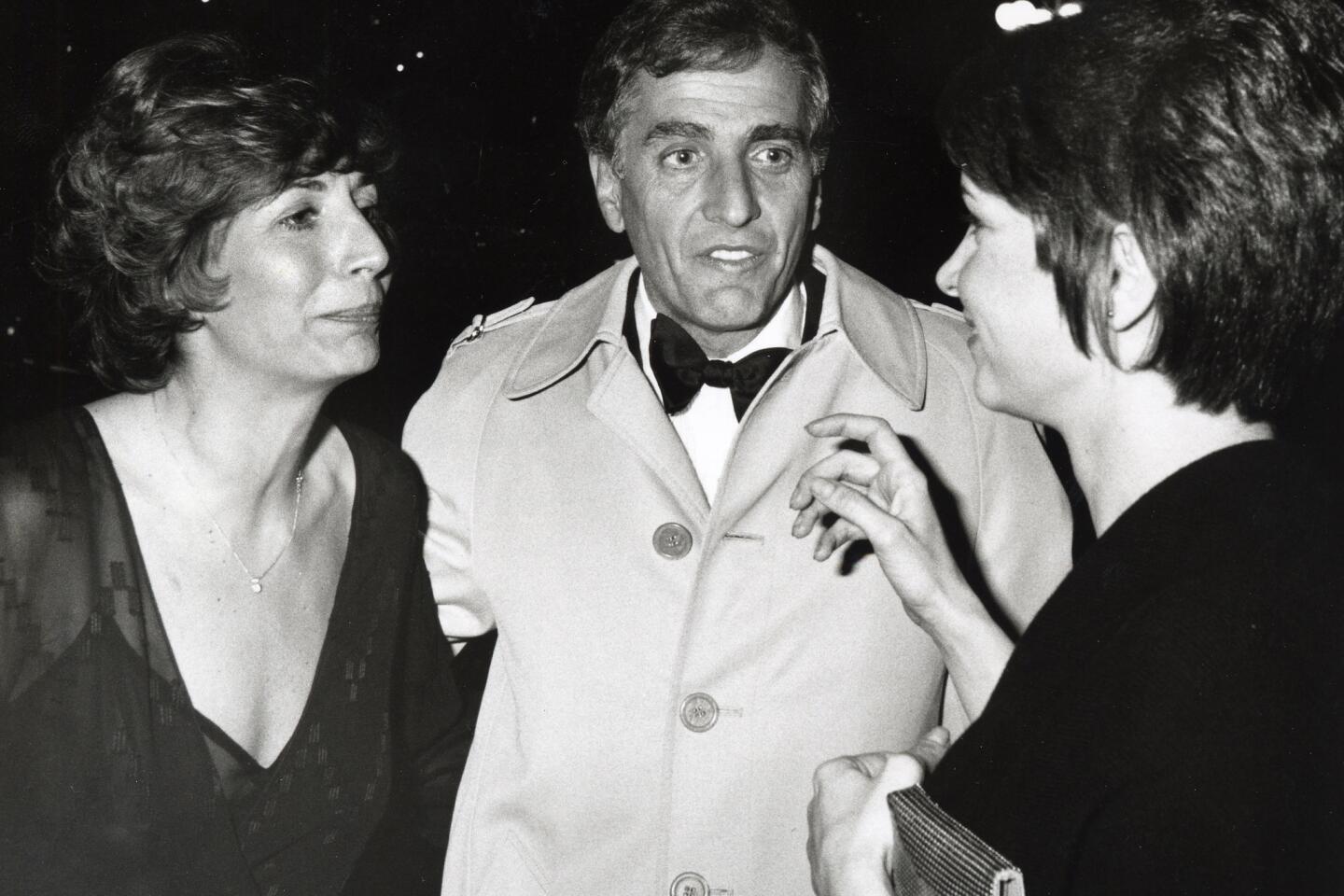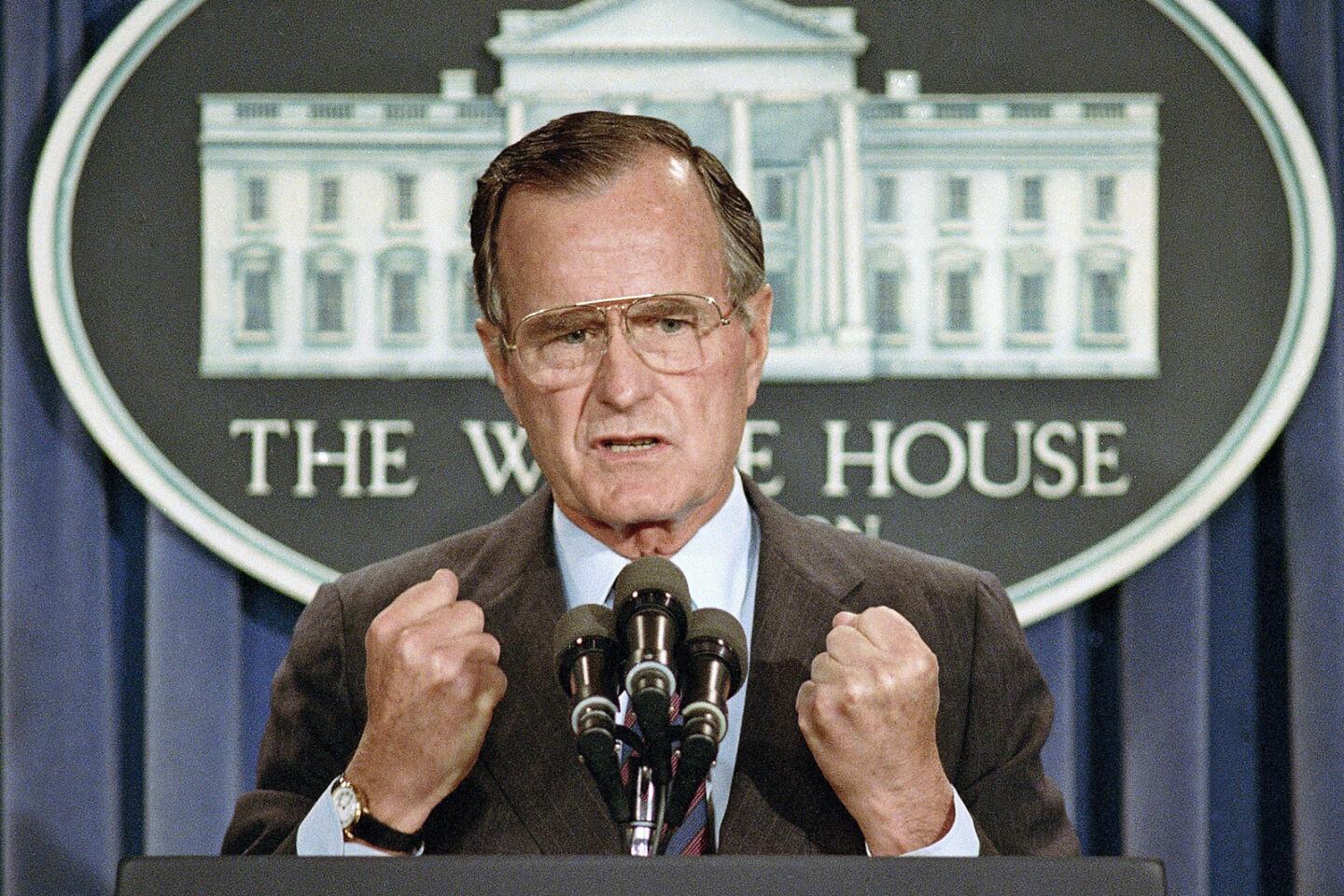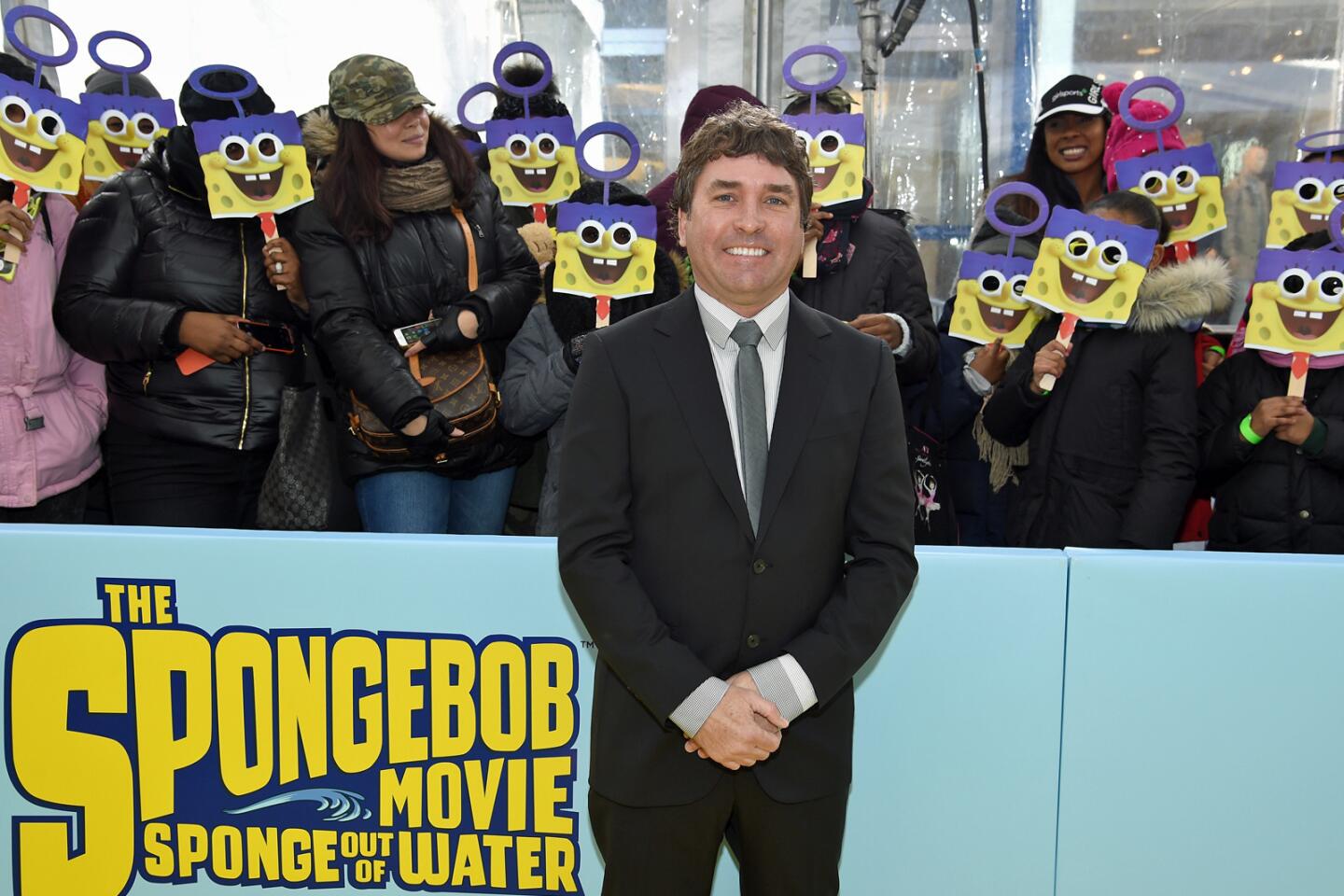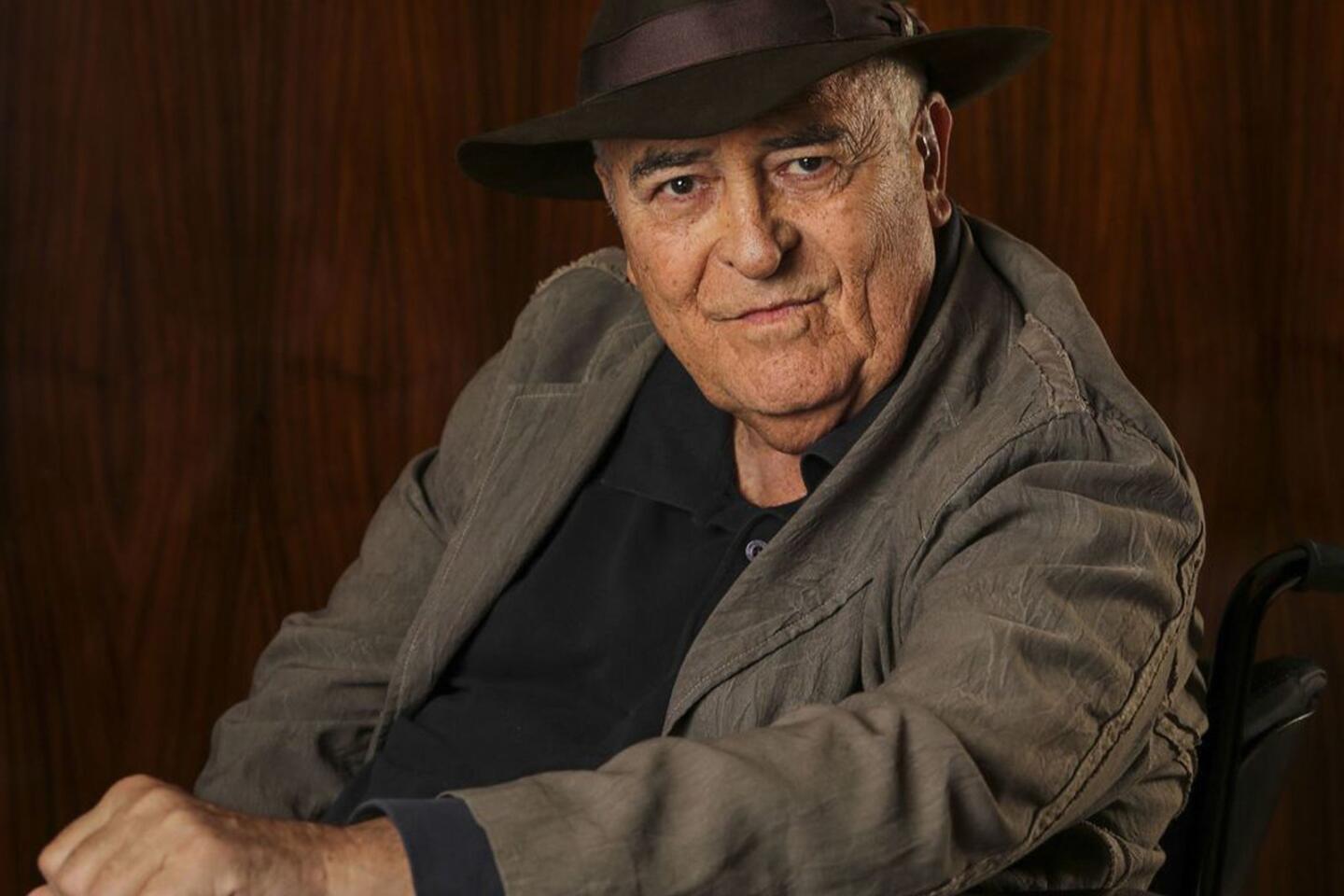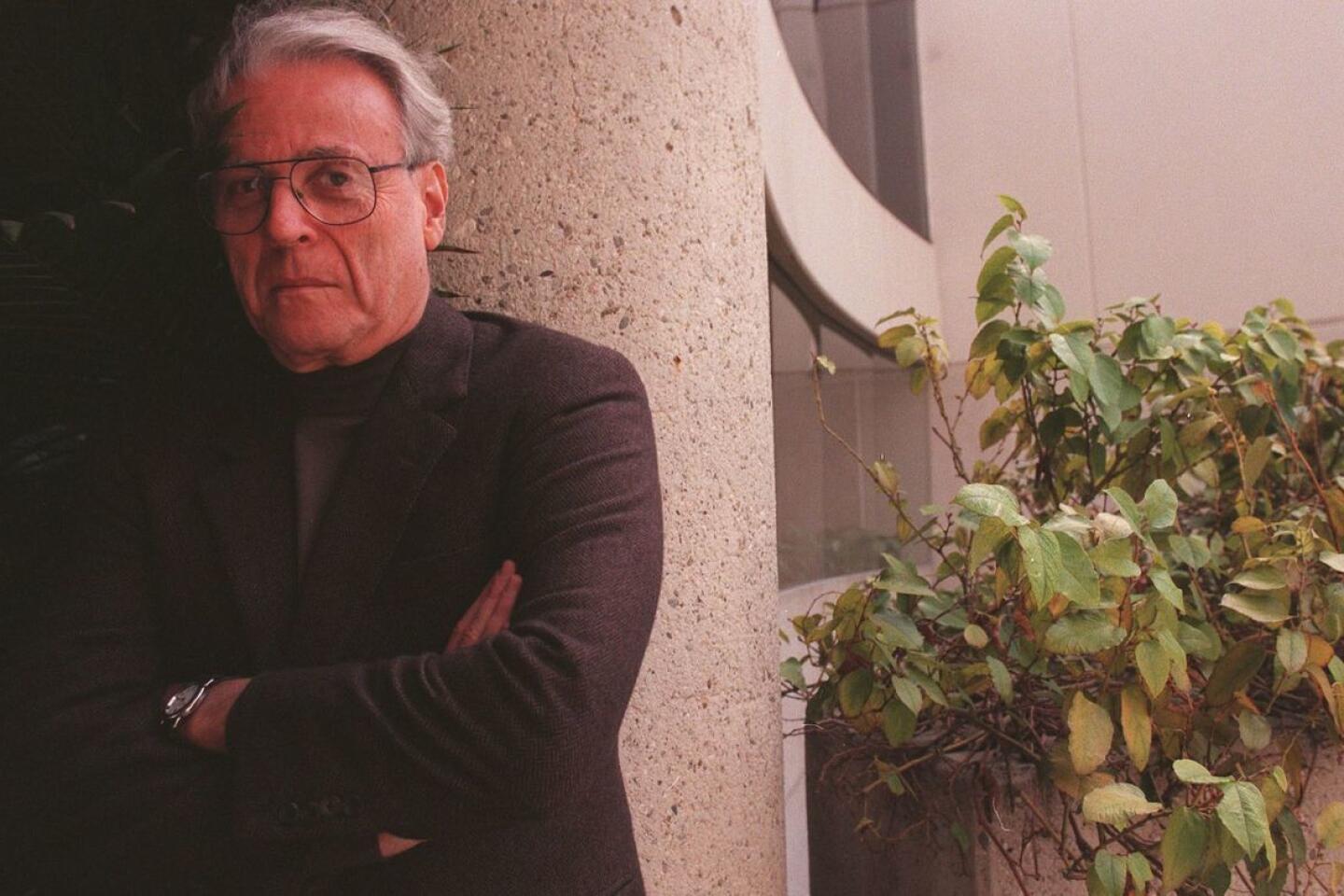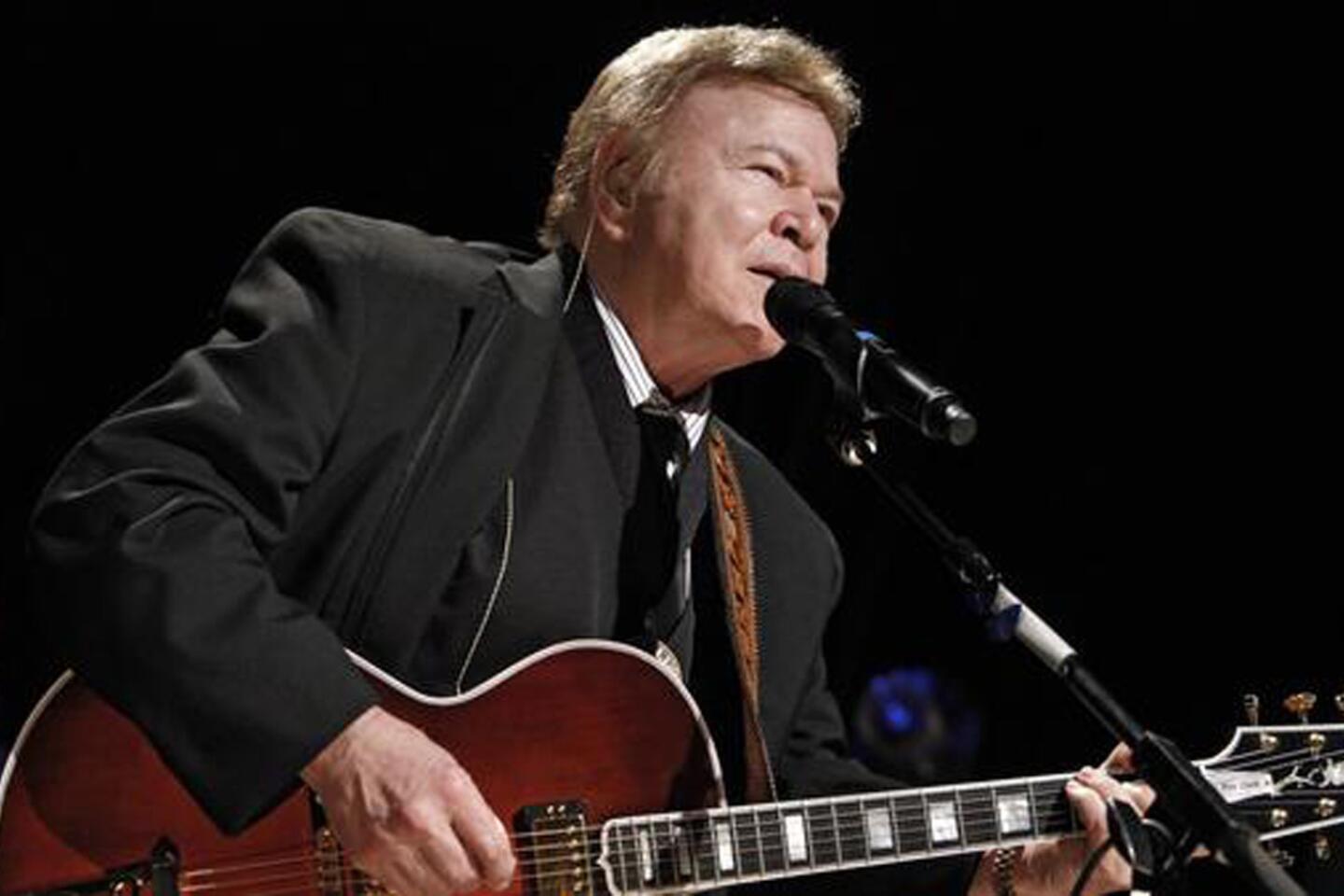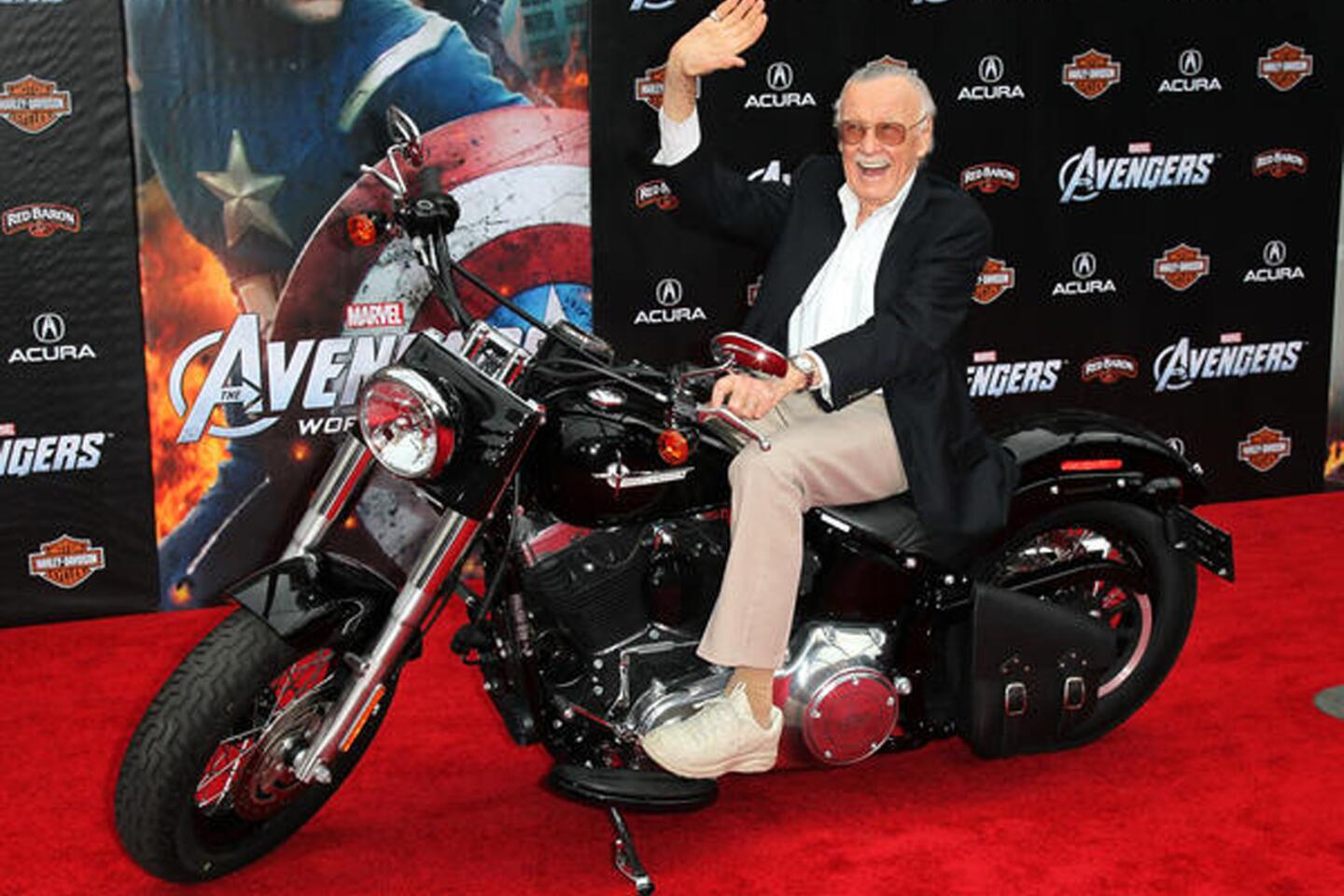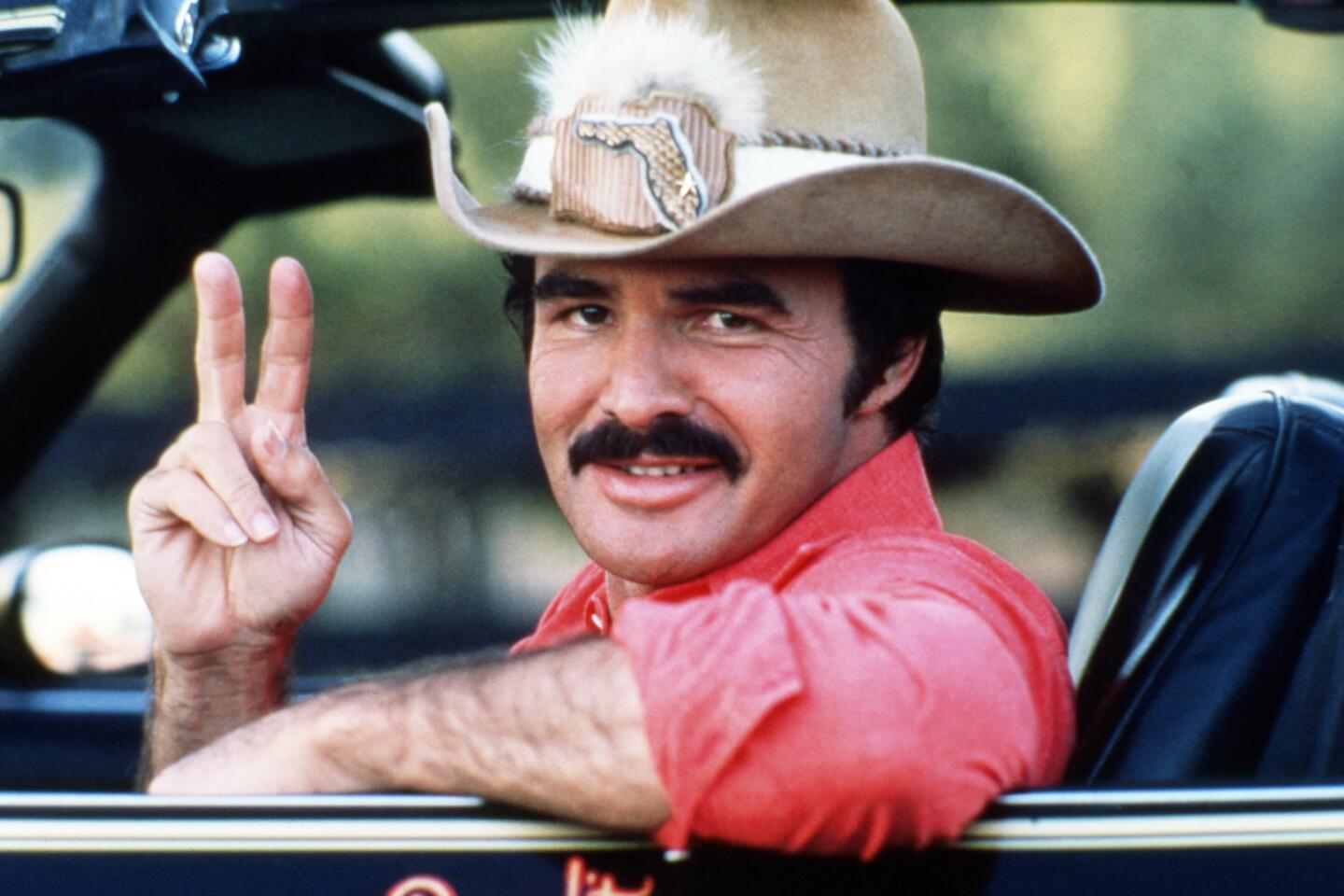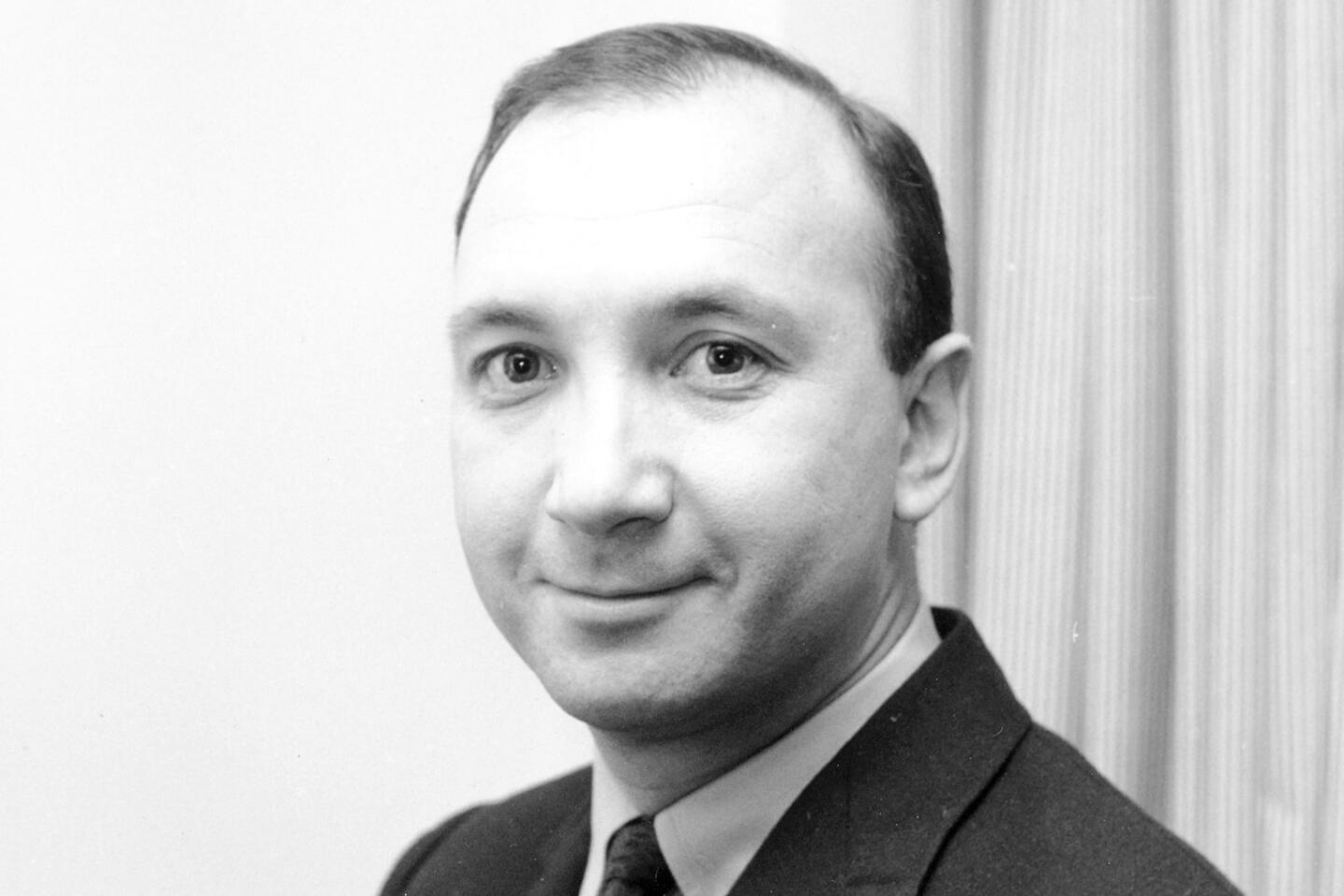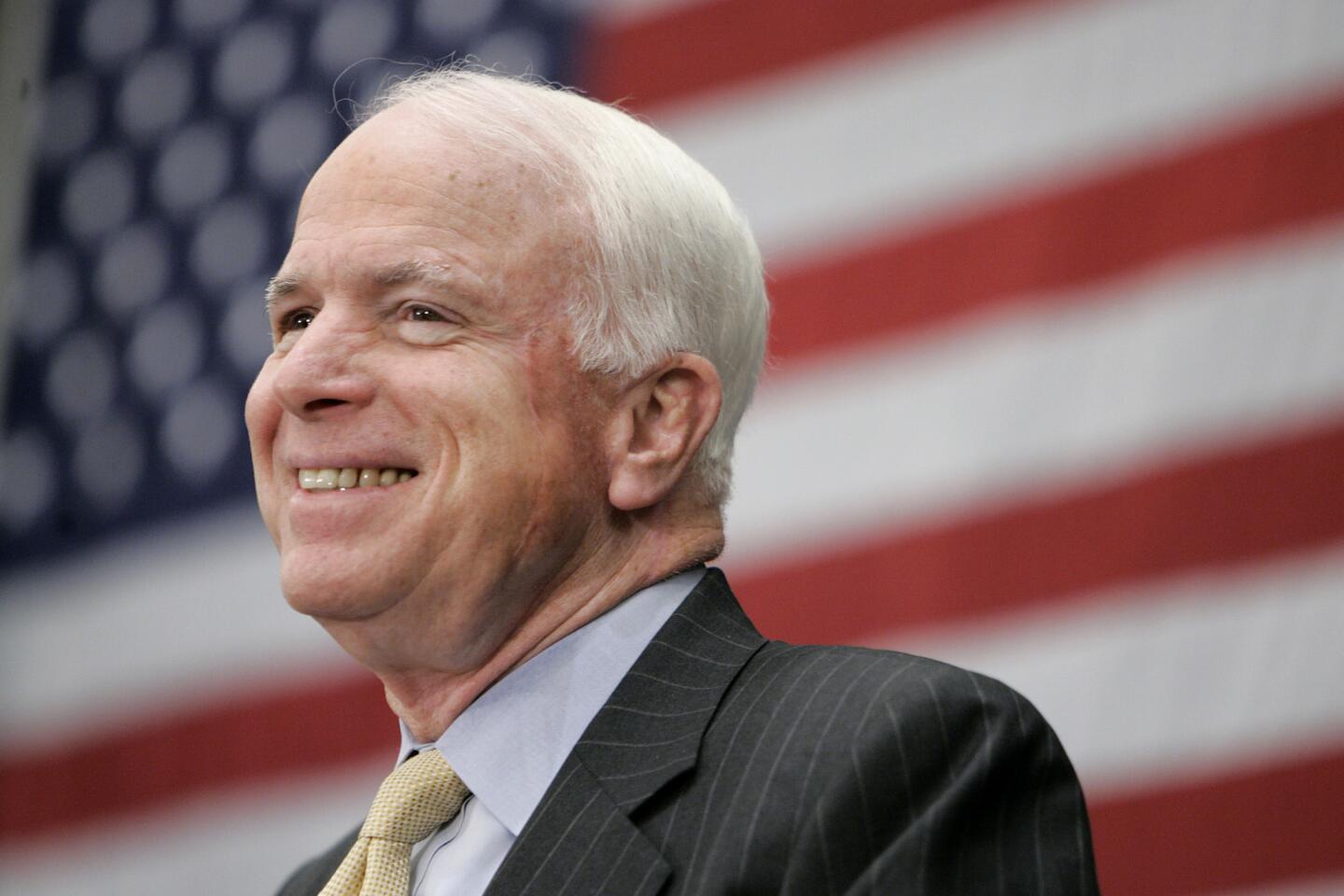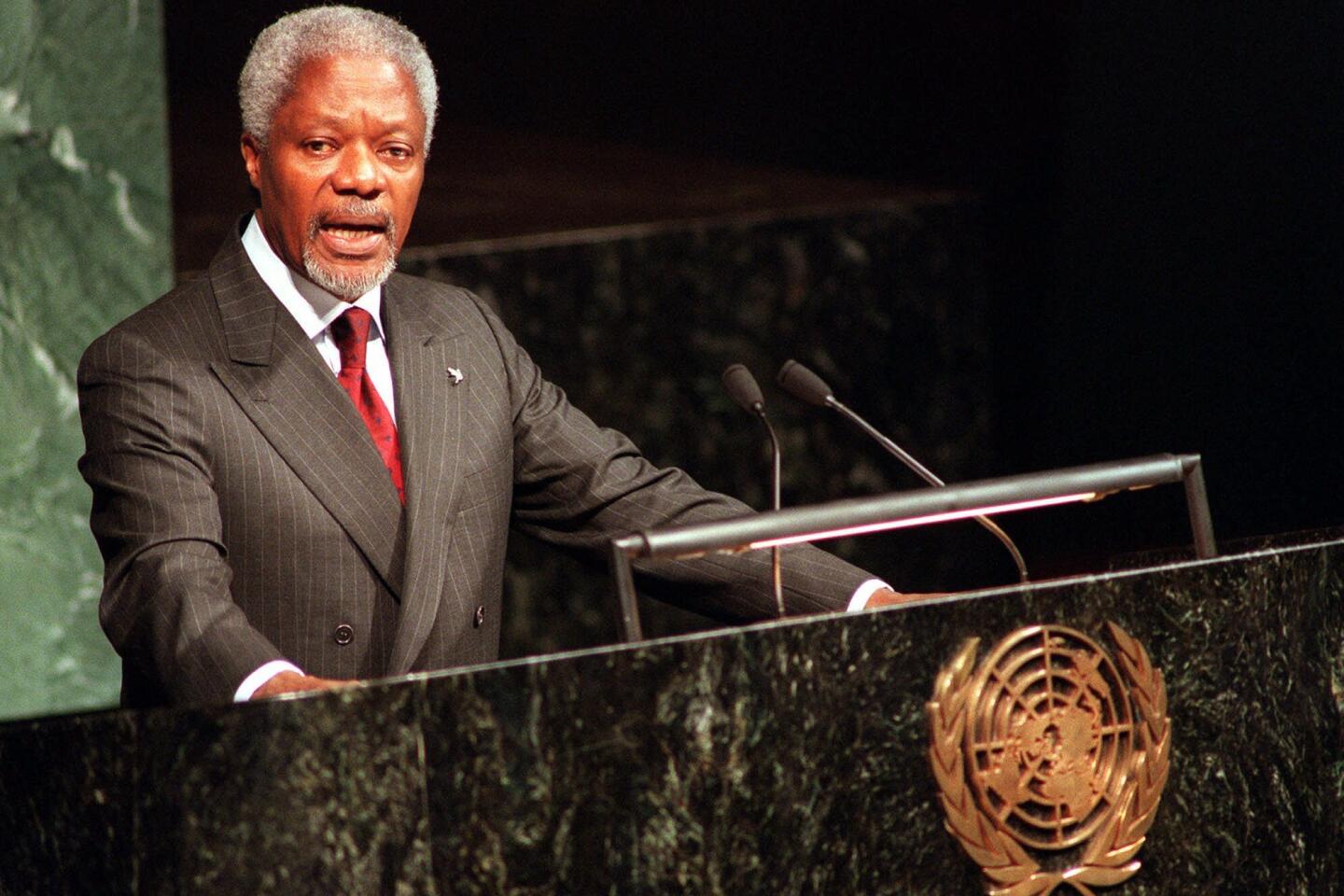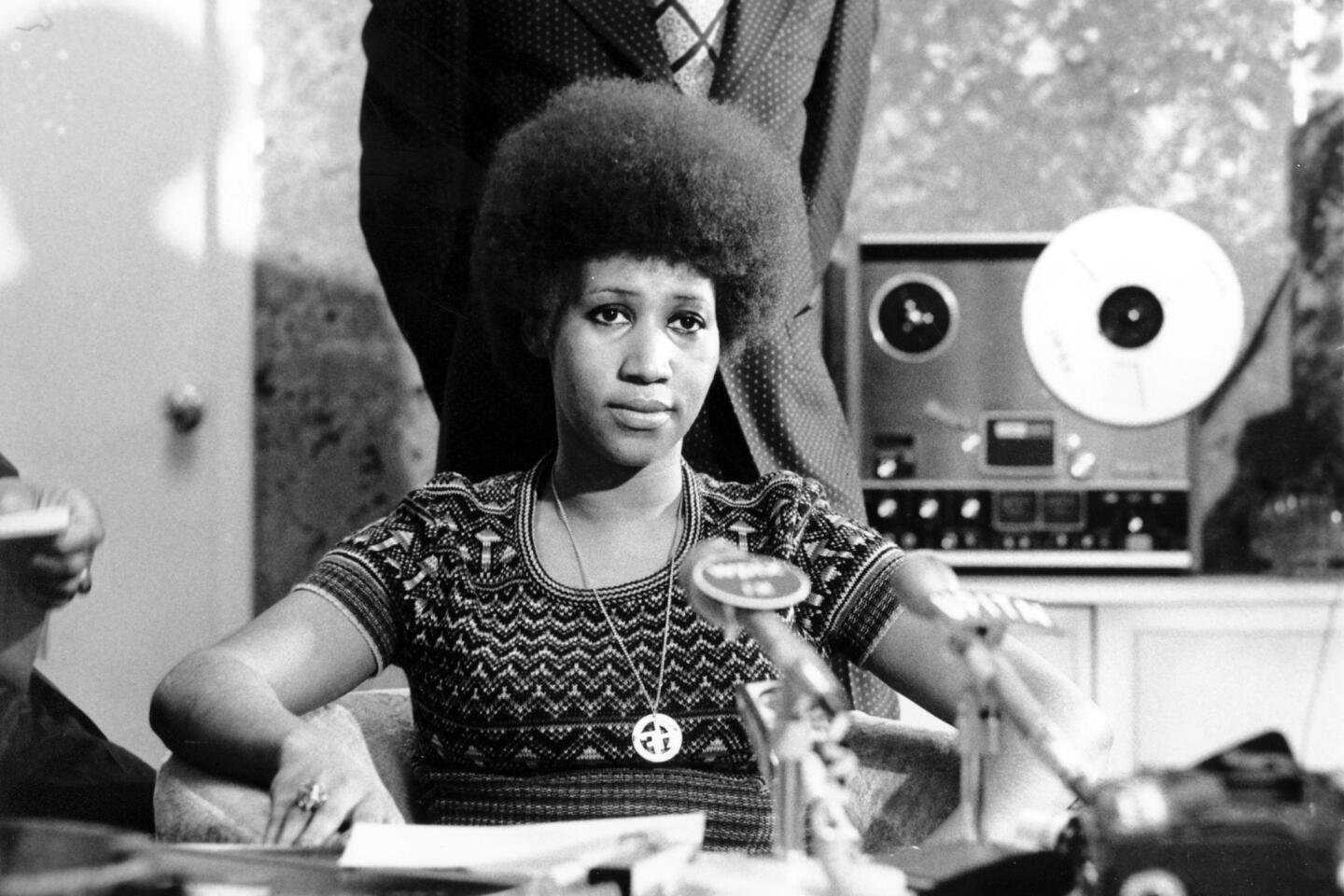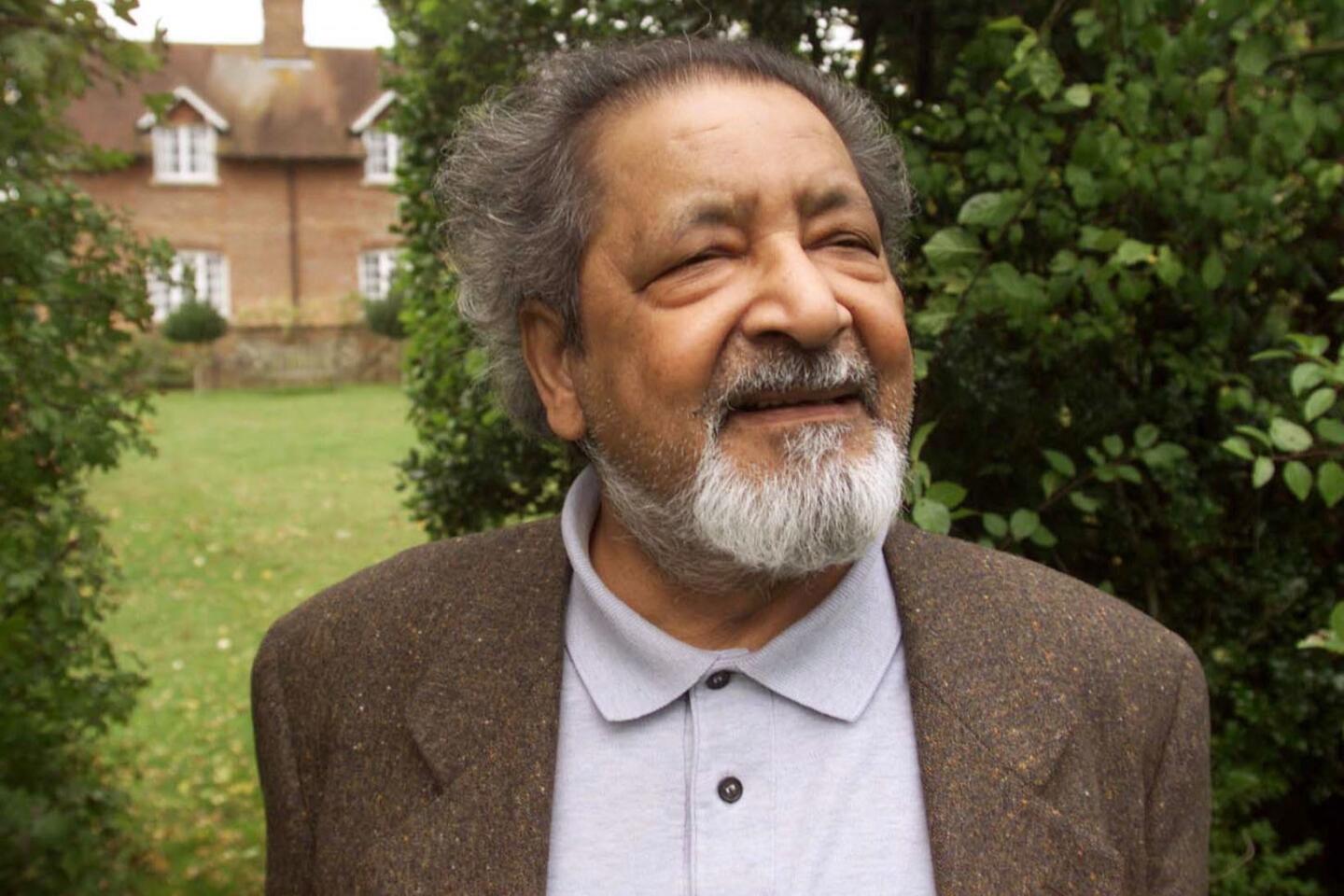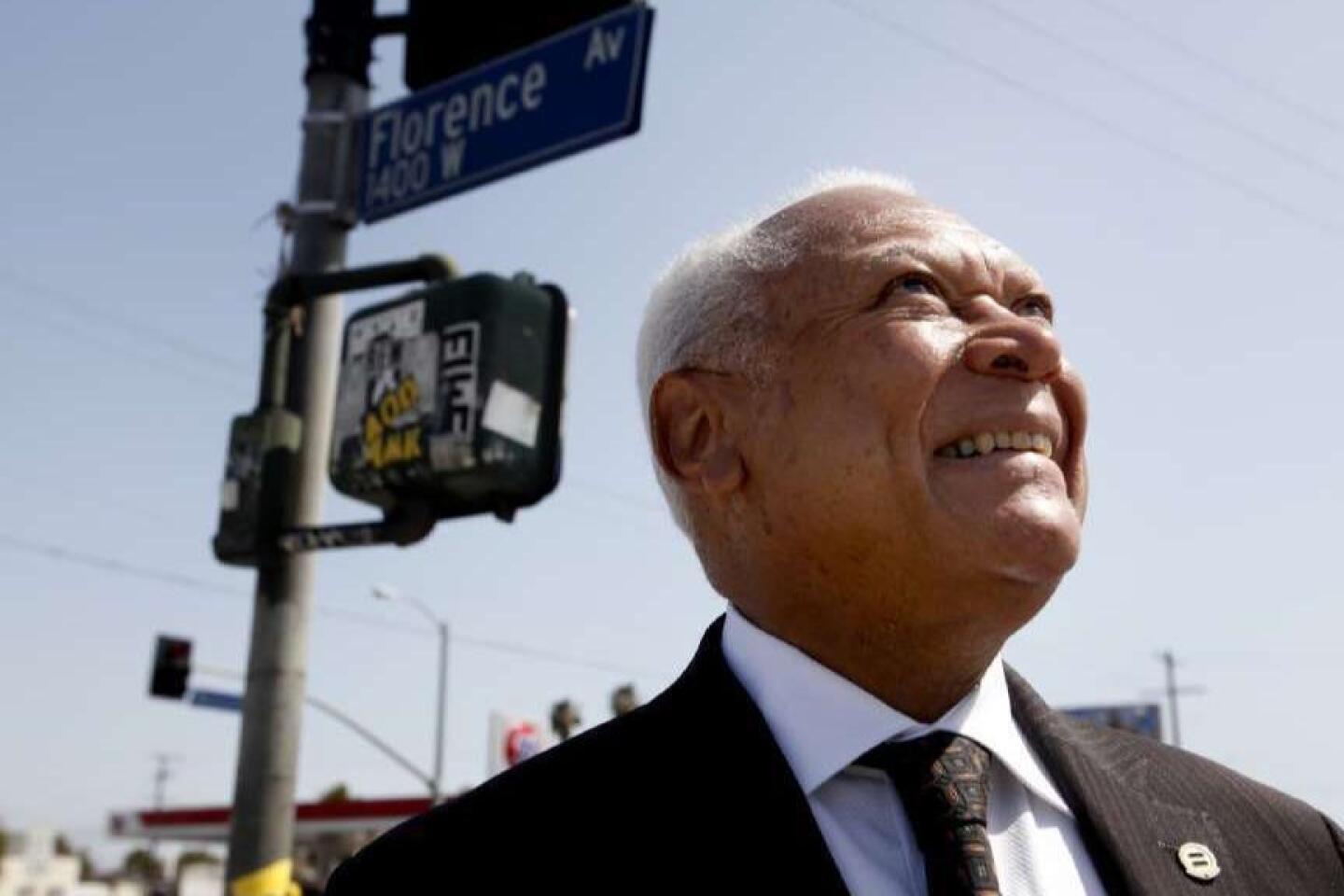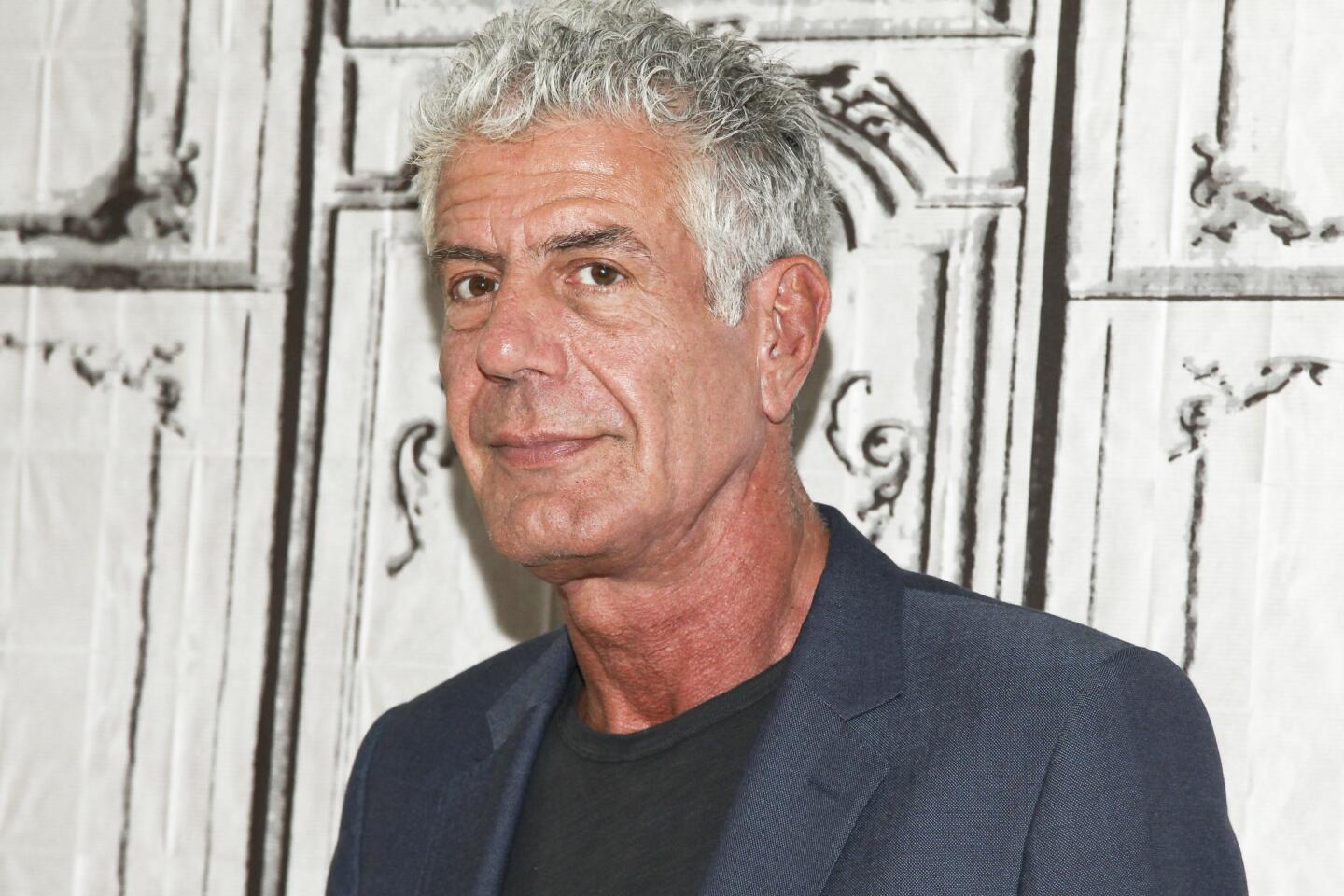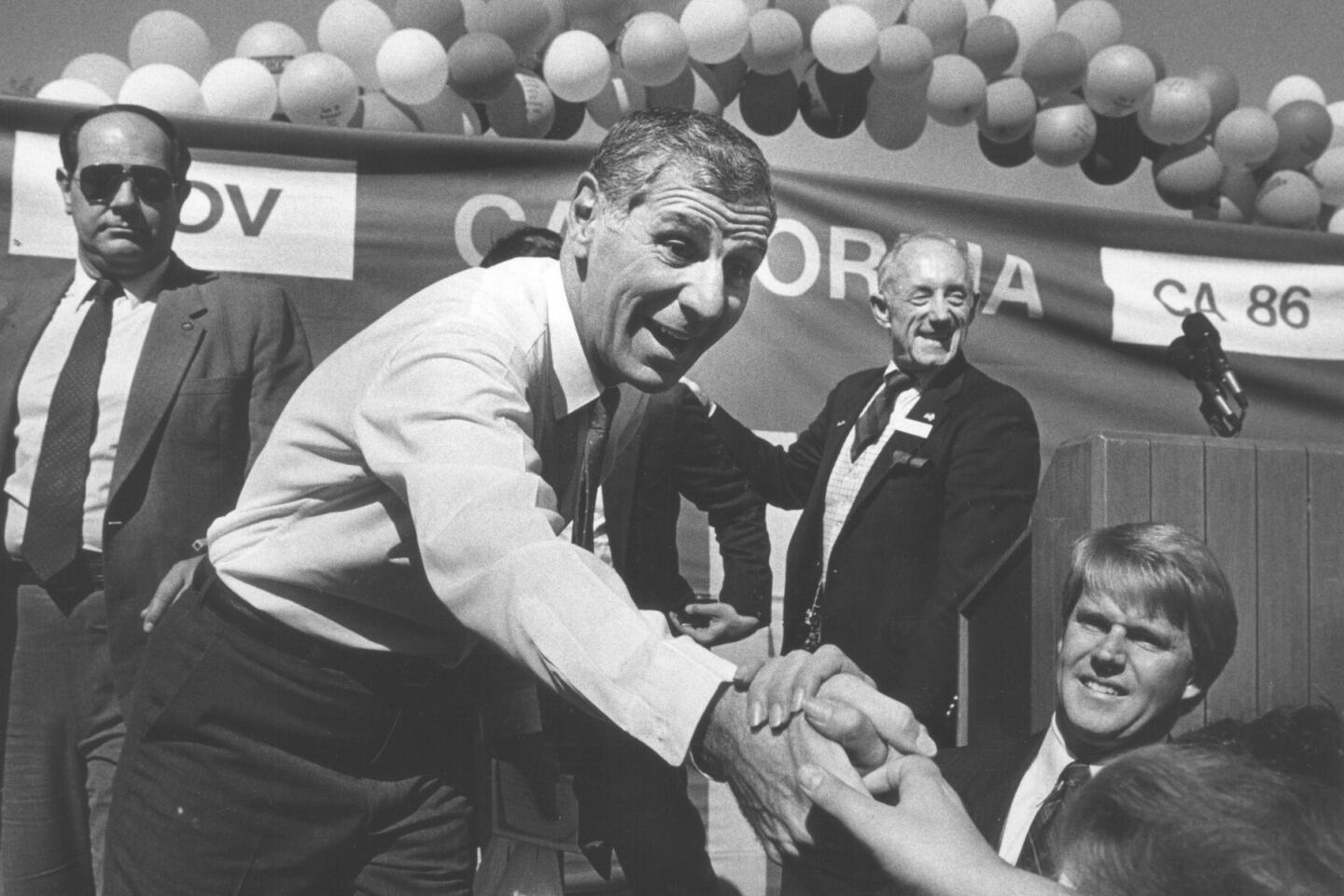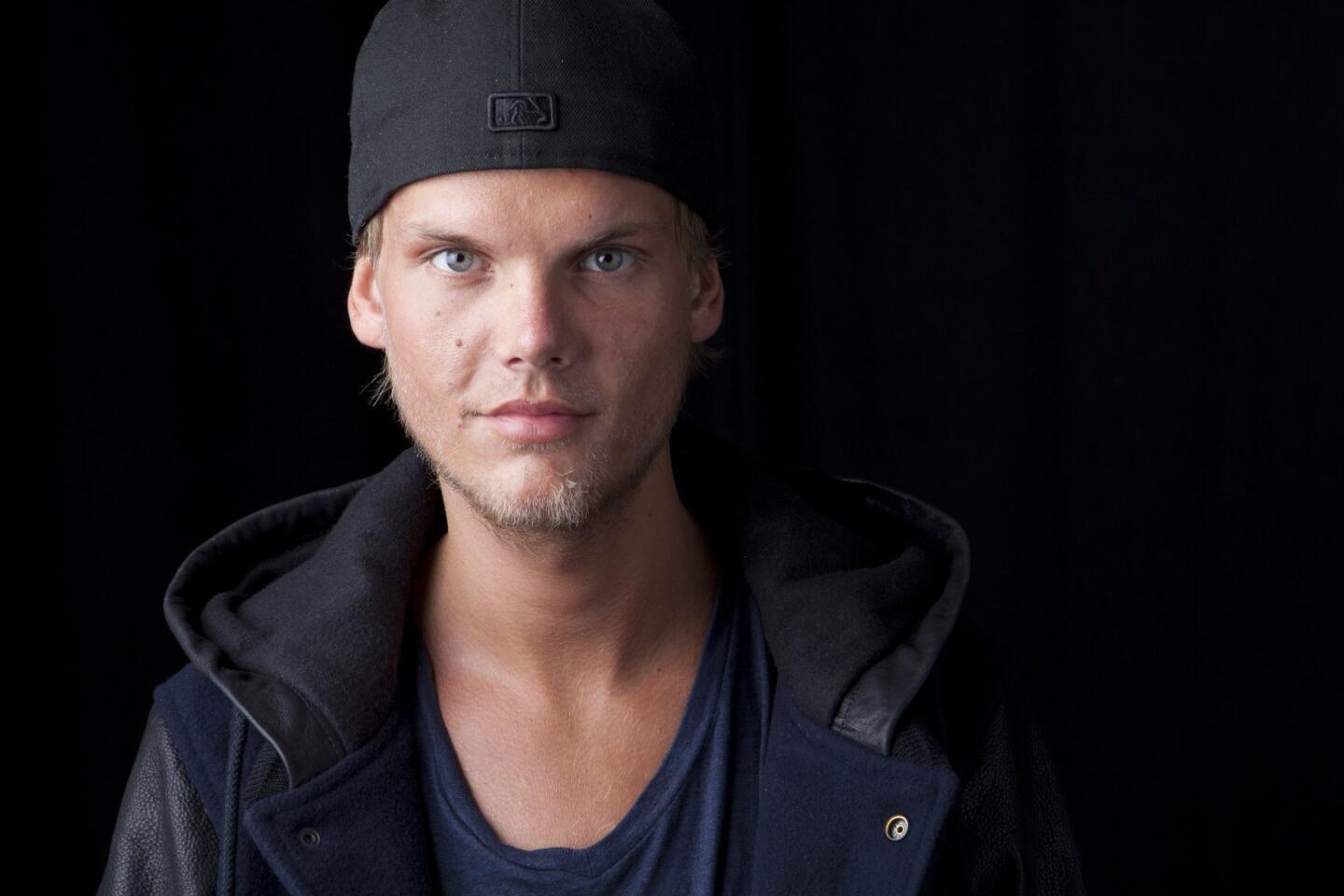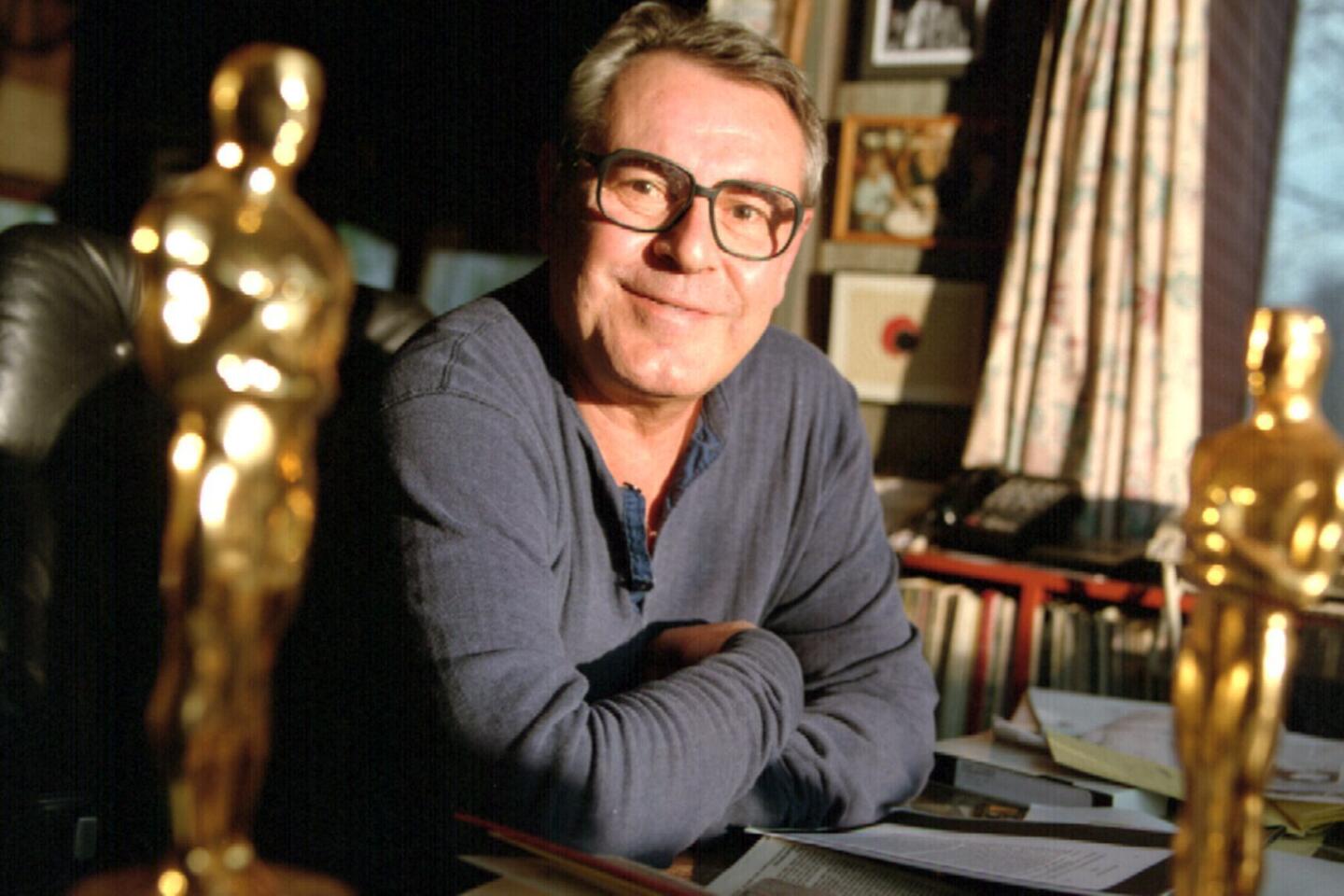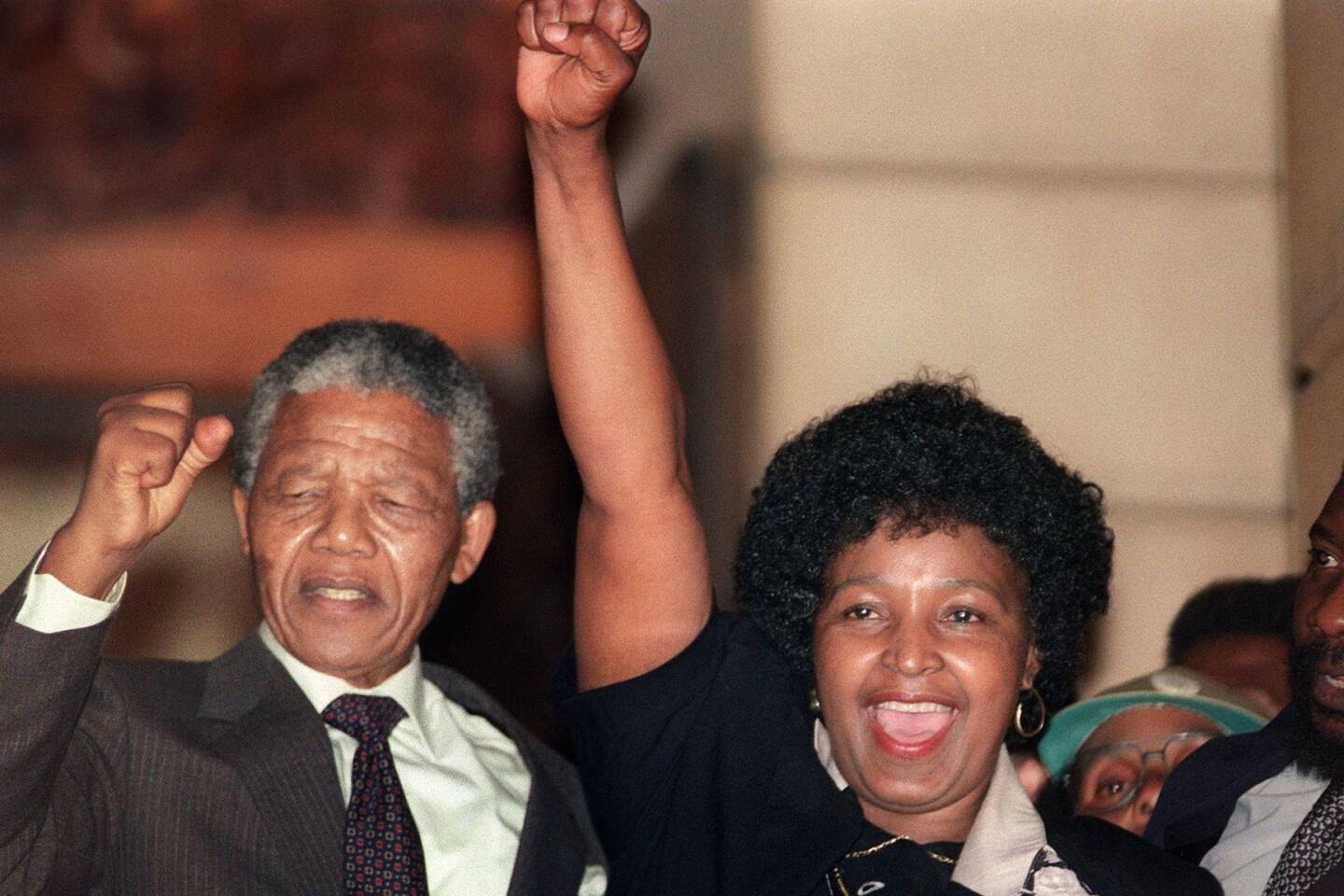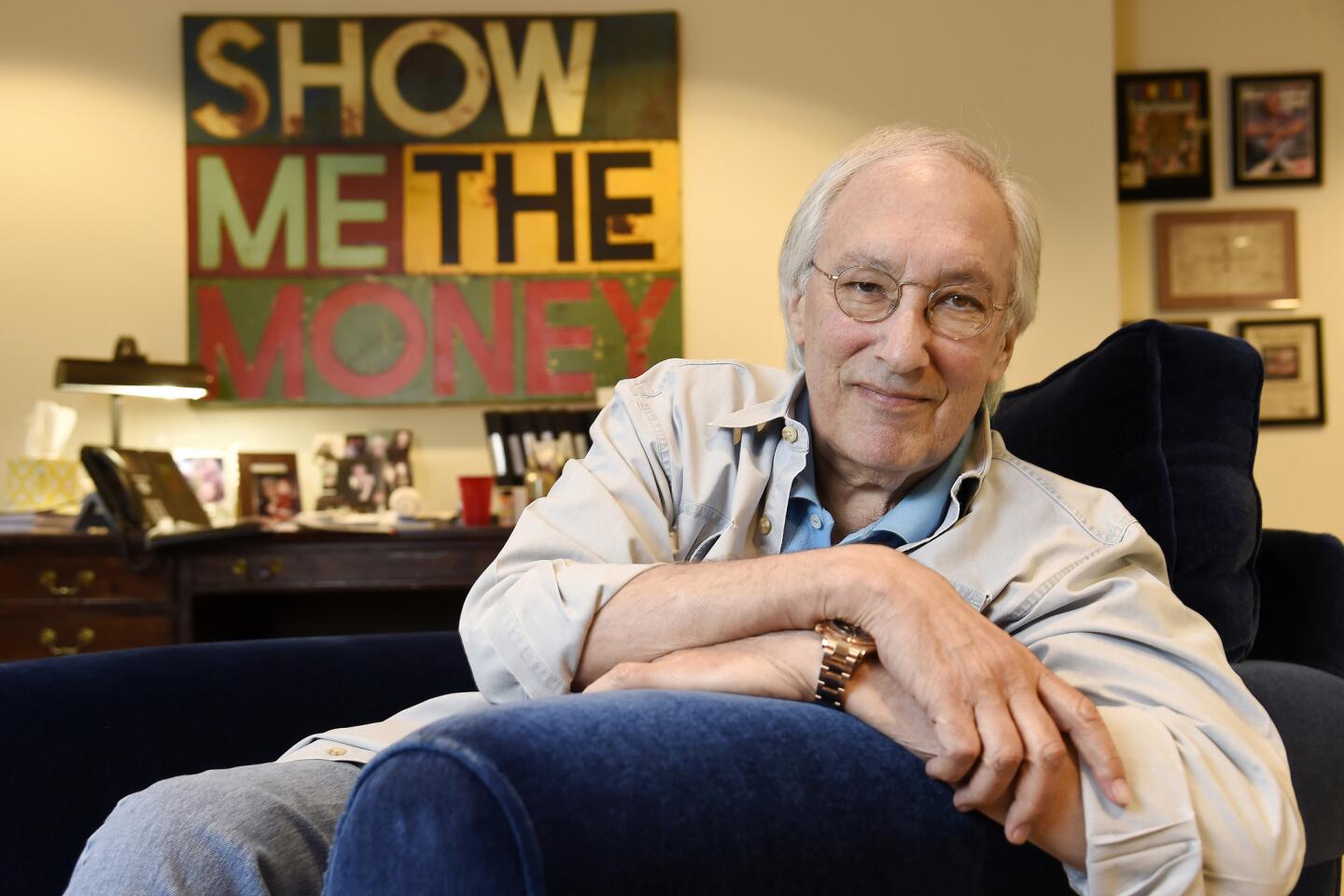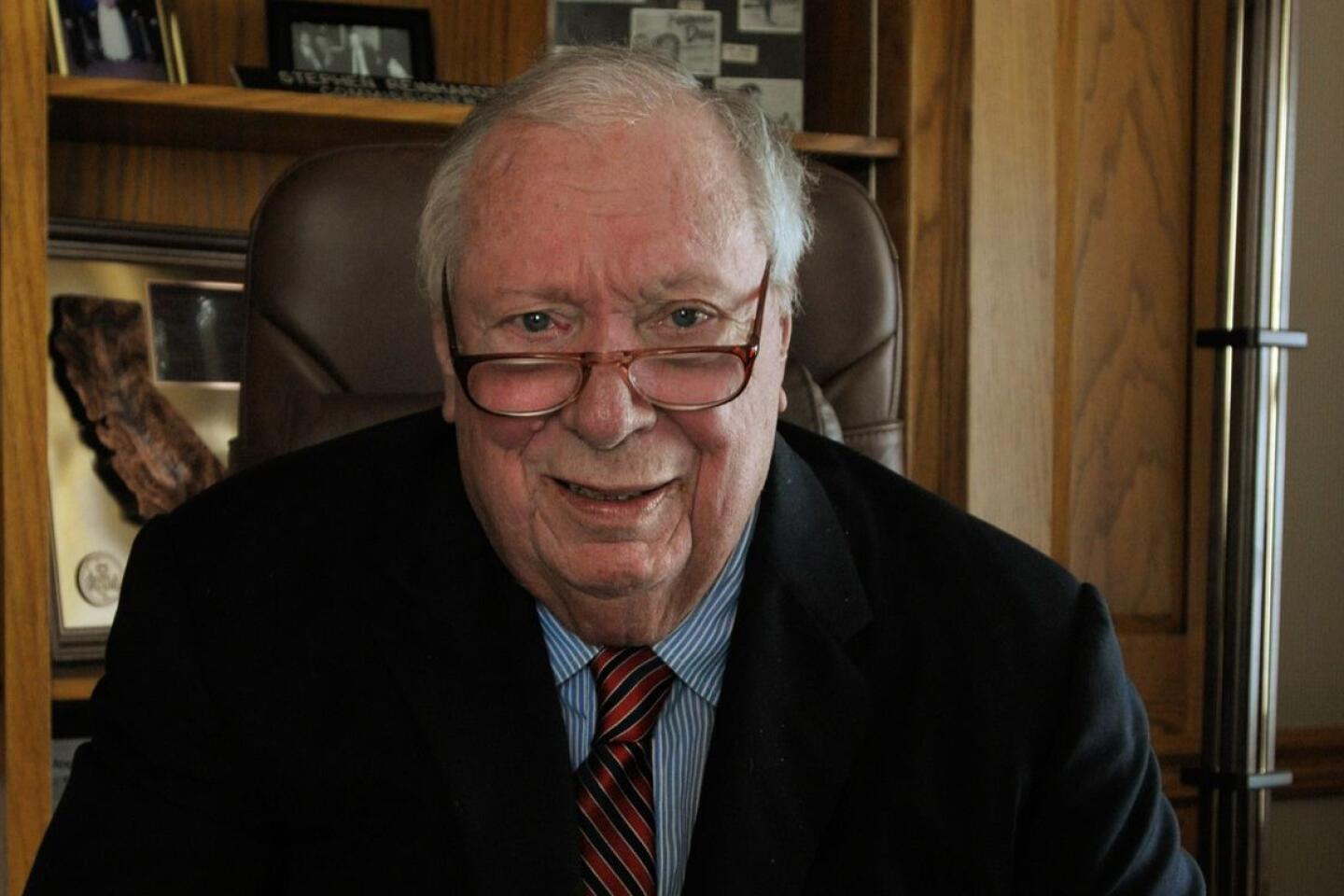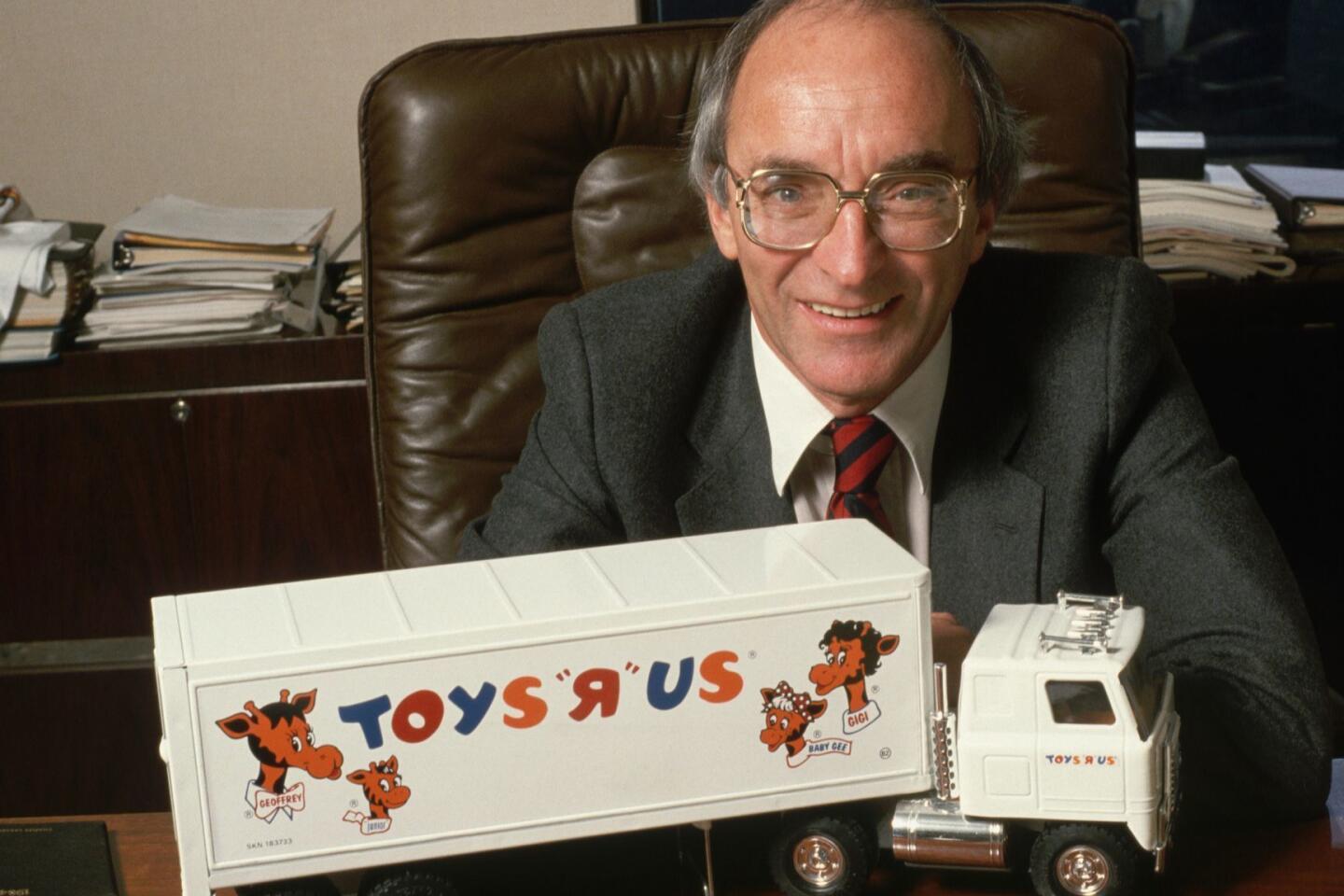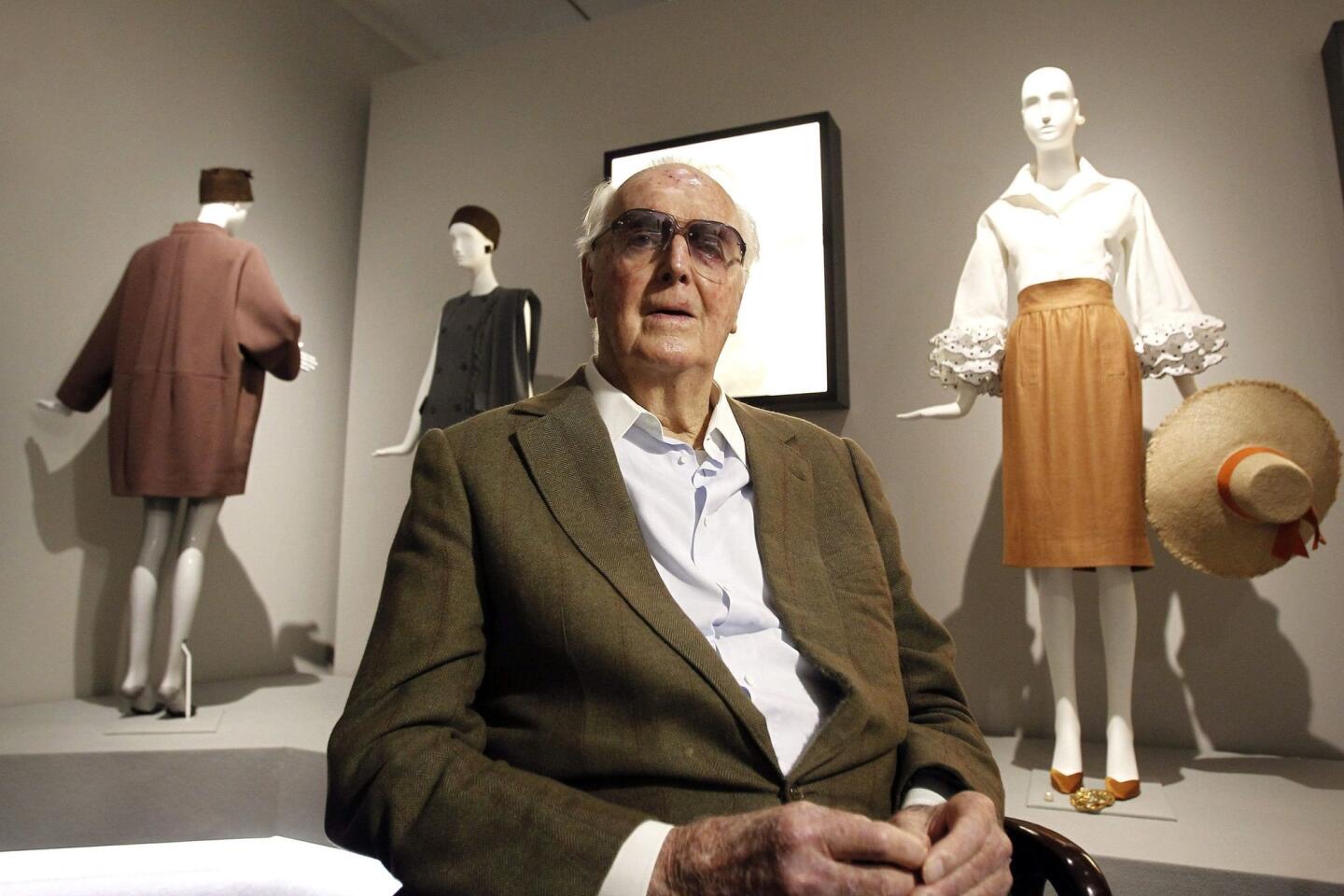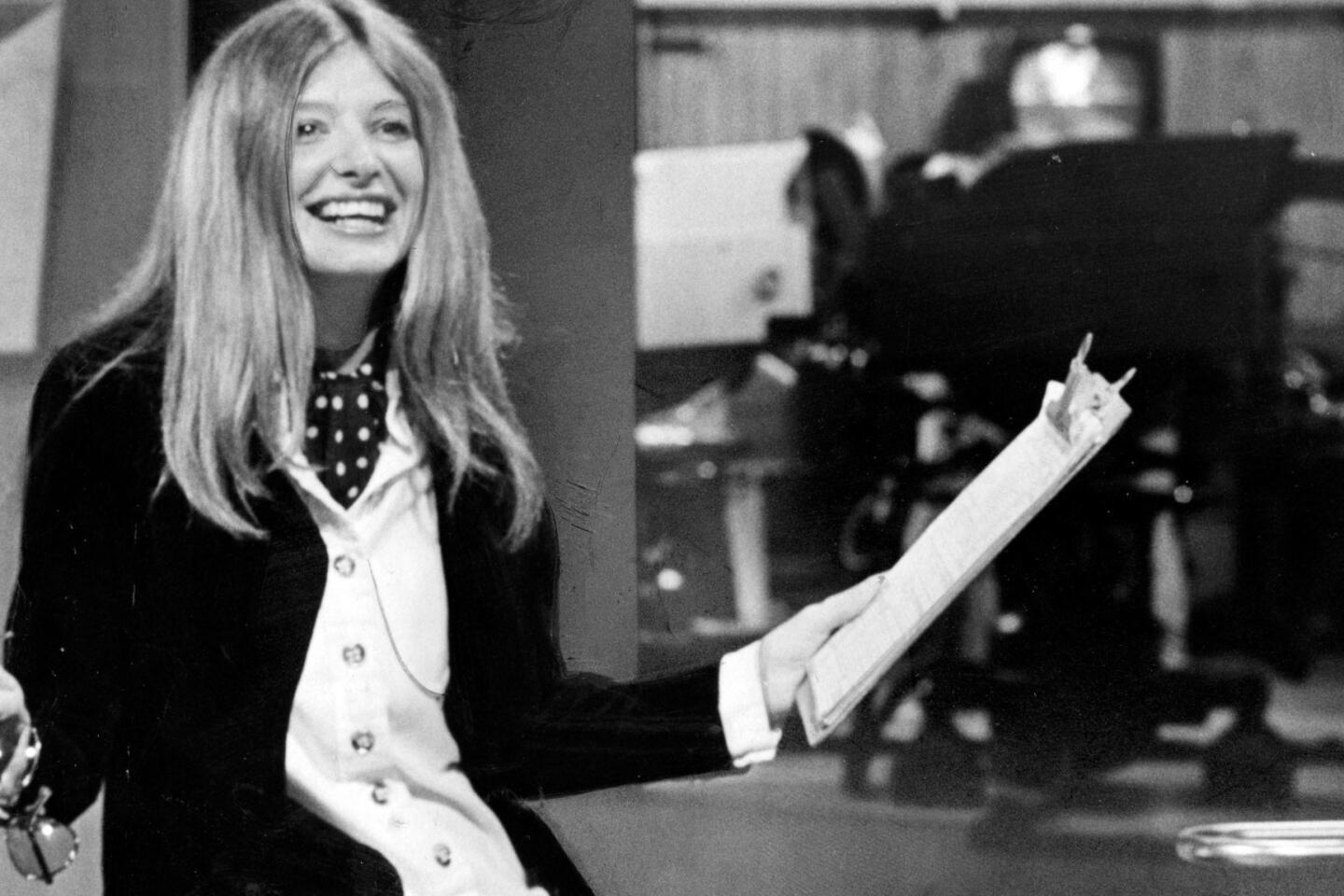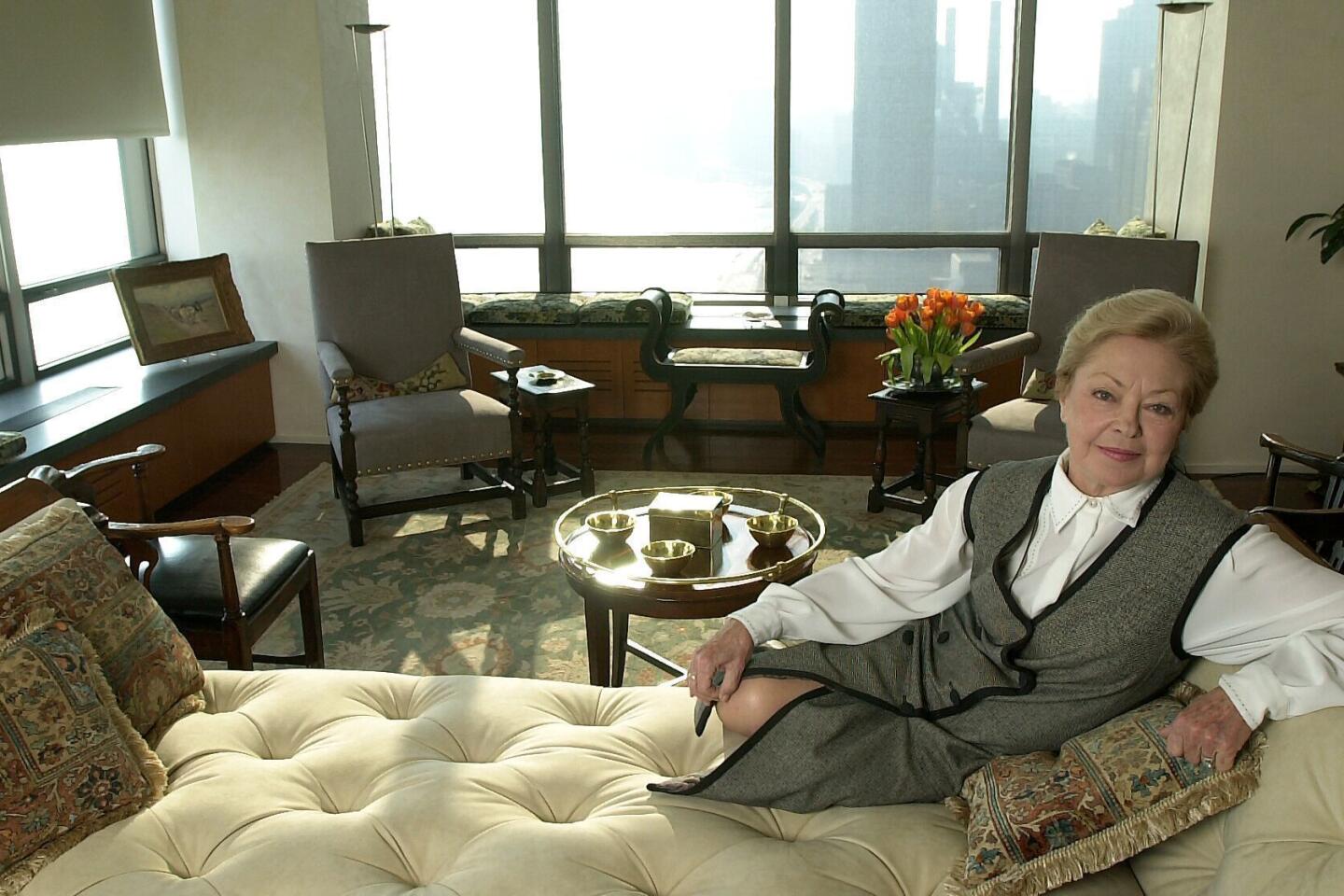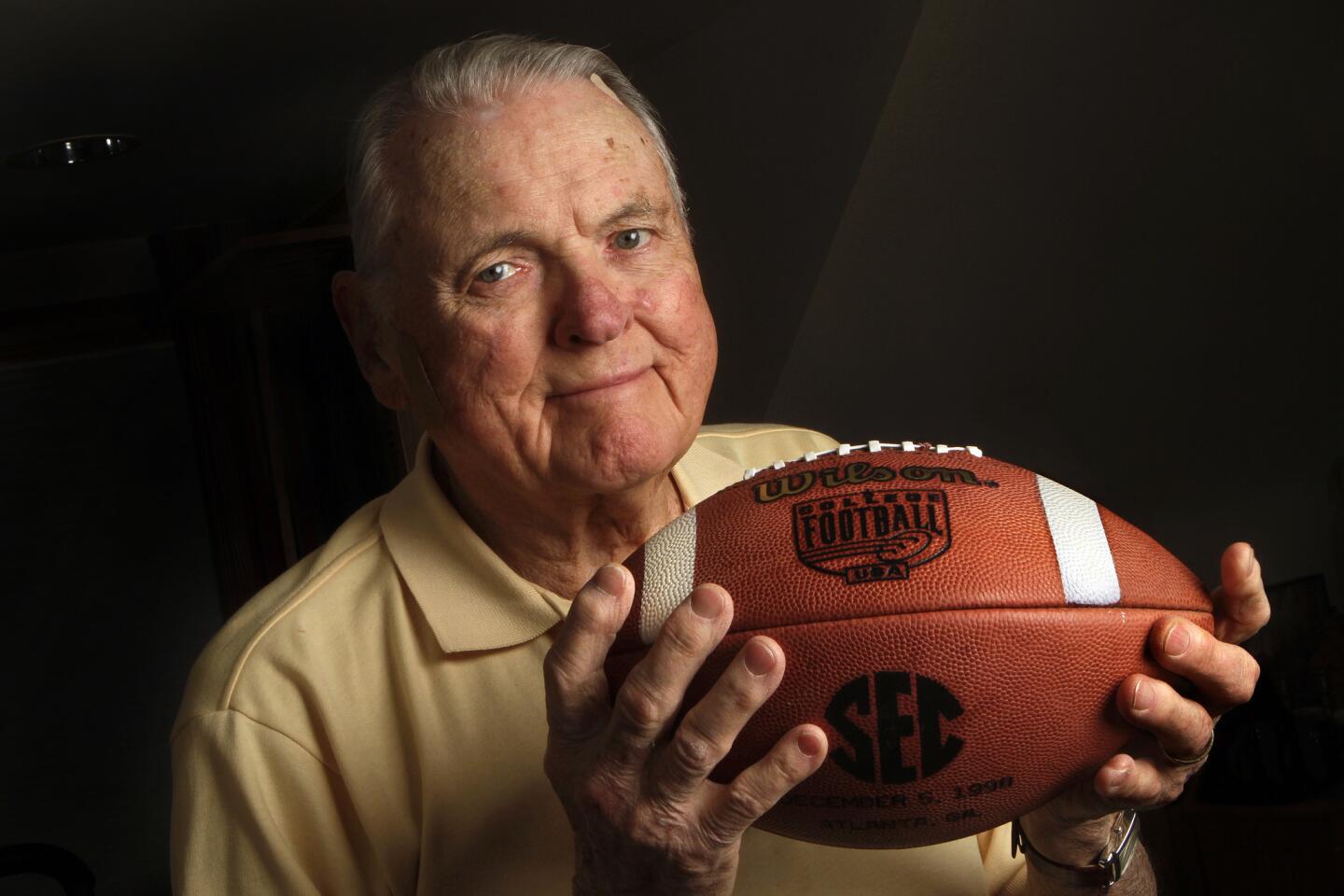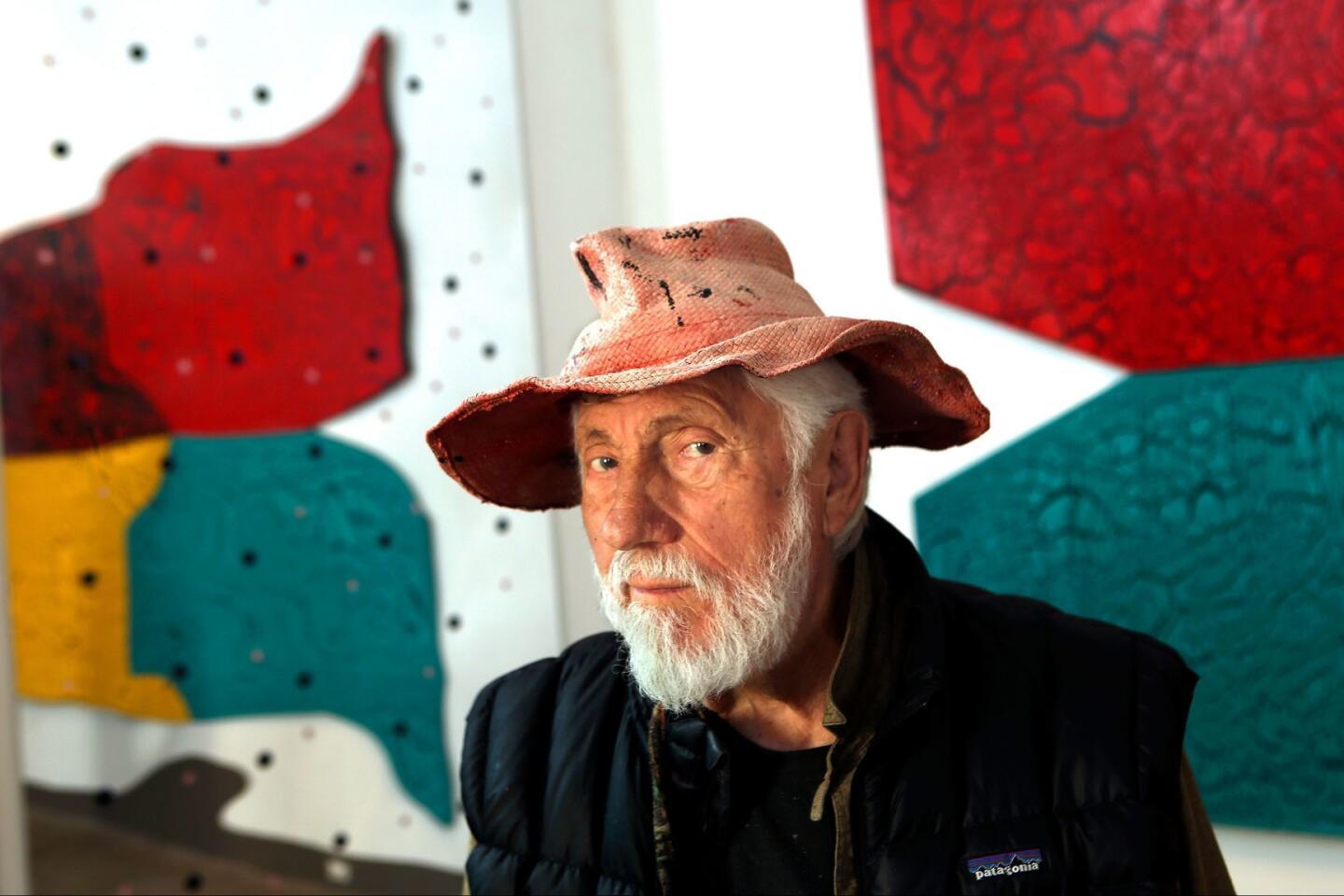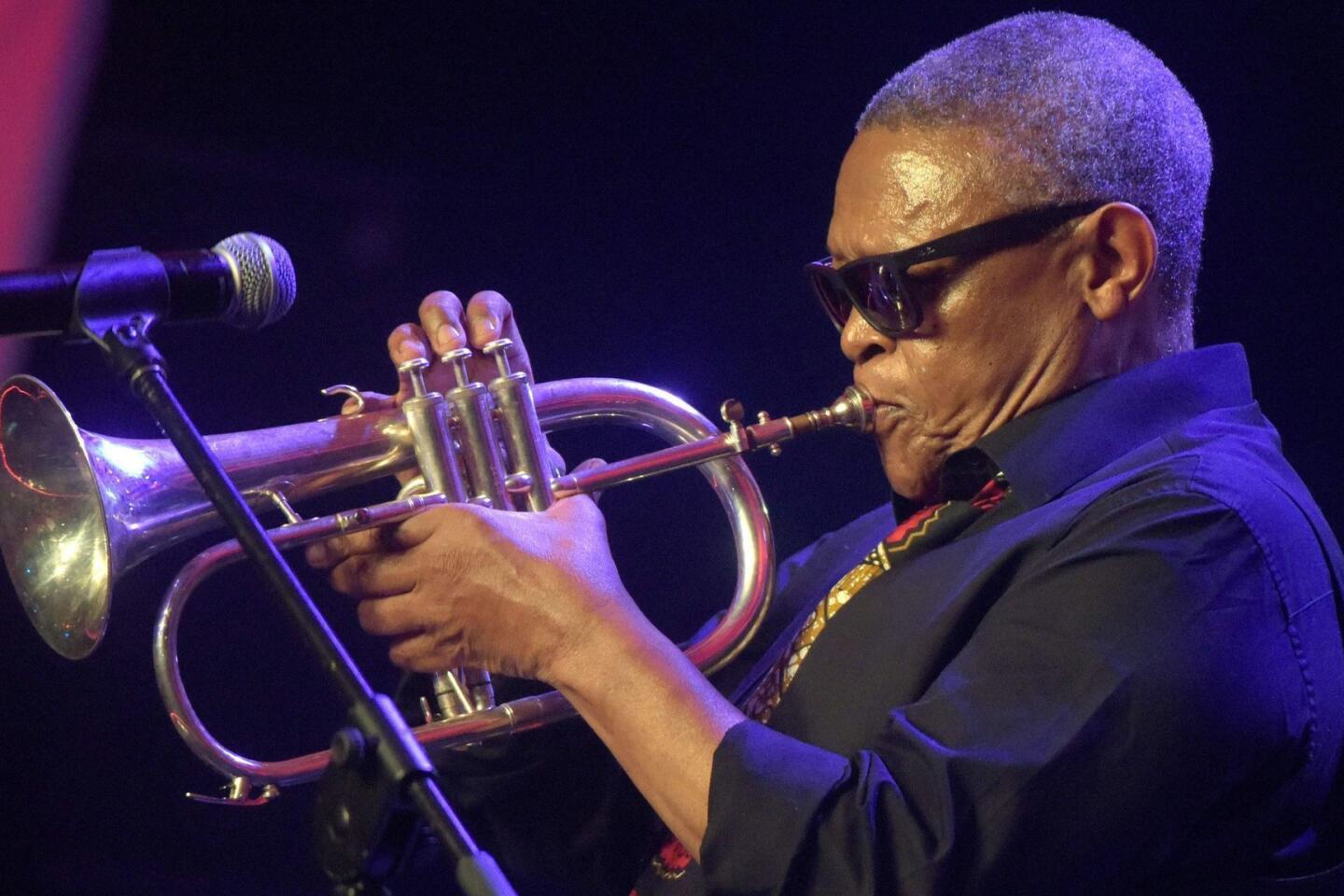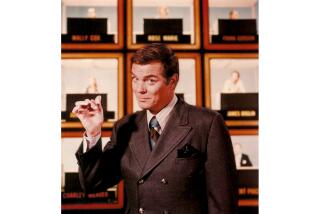Penny Marshall had been making minor inroads in Hollywood for several years before the iconic Laverne and Shirley characters debuted as Richie and Fonzie’s double dates on an episode of “Happy Days” in 1975.
Marshall, who played the feisty Laverne on the spinoff series, “Laverne & Shirley,” was a semi-regular on “The Odd Couple” as Oscar Madison’s secretary and a regular on the short-lived “Paul Sand in Friends and Lovers.”
But her career received a big boost from her brother Garry Marshall, who had been an executive producer on “The Odd Couple.” He also created “Happy Days” and co-created “Laverne & Shirley.”
“I’m sure people thought I got parts because my brother was being nice, and at first I probably thought the same thing,” Penny Marshall told The Times in 1988. “But my brother finally told me, ‘I’m not giving you a job ‘cause I’m nice. I’m not that nice.’”
With her deadpan demeanor and flat-toned Bronx accent that a TV Guide writer once described as sounding like “a groan filtered through a whine,” Marshall costarred as a Milwaukee brewery worker in “Laverne & Shirley” before becoming a director of hit movies such as “Big” and “A League of Their Own.”
Marshall died Monday night in her Hollywood Hills home due to complications from diabetes, Michelle Bega, a spokeswoman for Marshall’s family, told The Times on Tuesday. She was 75.
“Our family is heartbroken over the passing of Penny Marshall,” the family said in a statement.
‘Simply heartbroken’: Penny Marshall remembered for her TV and film achievements »
“Goodbye, Penny,” tweeted “Big” and “A League of Their Own” star Tom Hanks. “Man, did we laugh a lot! Wish we still could. Love you. Hanx.”
Hanks, his “League” costar Rosie O’Donnell and Mark Wahlberg, who got his first acting job from Marshall, were among the numerous celebrities to salute the late actress and director Tuesday.
With “Big,” Marshall made history as the first woman to direct a film that grossed more than $100 million, but it was the wisecracking Laverne DeFazio of “Laverne & Shirley” who jump-started her career.
“One, two, three, four, five, six, seven, eight! Schlemiel! Schlimazel! Hasenpfeffer Incorporated,” Marshall and costar Cindy Williams famously chanted as they skipped down the sidewalk in the show’s opening sequence.
Starring alongside Williams’ idealistic Shirley Feeney, the two 1950s working-class roommates worked on the assembly line at the Shotz Brewery in Milwaukee.
The midseason replacement show was launched on ABC in January 1976 and soared to the top of the ratings. Known for its broad physical comedy, it was the No. 1-rated show for the 1977-78 and 1978-79 seasons and aired until 1983.
“There were no blue-collar girls on television” when ‘Laverne & Shirley’ debuted,” executive producer Garry Marshall once said in an interview for the Archive of American Television.
Viewers, he said, “were dying for somebody that didn’t look like Mary Tyler Moore or all the pretty girls on TV. They wanted somebody who looked like a regular person. And my sister looks like a regular person — talks like a regular person — and Cindy Williams was brilliant as Shirley.”
“Laverne & Shirley” had been off the air three years when Marshall made her feature film debut as a director of the 1986 Whoopi Goldberg comedy “Jumpin’ Jack Flash.”
She had directed four episodes of “Laverne & Shirley” and the pilot for the short-lived 1979 sitcom “Working Stiffs” when she received an unexpected offer to replace director Howard Zieff 10 days into the shooting of “Jumpin’ Jack Flash.”
“It was real scary,” Marshall told the New York Times in 1992. “I was hired on a Friday and went to work on a Monday. I didn’t know you had to shoot from so many angles!”
1/5
Penny Marshall and her brother, writer-producer Garry Marshall, were among attendees at the 6th annual “TV Land Awards” in 2008, held at Barker Hangar in Santa Monica.
(Charley Gallay / Getty Images) 2/5
Penny Marshall, a longtime Lakers fan, and Ice Cube were among those on hand at Staples Center for the 2005 celebration of the 1985 championship Lakers team, which included Kareem Abdul-Jabbar, center.
(Carlos Chavez / Los Angeles Times) 3/5
Tom Petty and Penny Marshall were on hand at Art for AIDS in Dana Point in 2003, a benefit for the AIDS Services Foundation of Orange County.
(Glenn Koenig / Los Angeles Times) 4/5
Penny Marshall threw a book party for her memoir, “My Mother Was Nuts,” in 2012 at a New York venue. Singer Art Garfunkel was among those in attendance.
(Dave Allocca / Associated Press) 5/5
Penny Marshall, brother Garry Marshall and “Laverne & Shirley” costar Cindy Williams at the 1980 International Broadcasting Awards, held at Century Plaza Hotel in Century City. Garry Marshall received a Man of the Year award.
(Ron Galella / WireImage) FROM THE ARCHIVES: With the success of 1988’s ‘Big,’ Penny Marshall’s career turned a corner »
The film was not a success, but her next one was.
“Big,” a fantasy tale in which a boy wakes up in the body of an adult man played by Hanks, earned the actor an Oscar nomination and made Marshall the first female director in Hollywood history to direct a movie that grossed more than $100 million.
“Awakenings” (1990), a medical drama starring Robert De Niro and Robin Williams, came next. It received three Oscar nominations, including for best picture and actor in a leading role (for De Niro).
Marshall went on to direct “A League of Their Own” (1992), “Renaissance Man” (1994), “The Preacher’s Wife” (1996) and “Riding in Cars with Boys” (2001).
Marshall appeared in a handful of roles in recent years, most related in some fashion to her late brother Garry Marshall, who died in 2016. That same year, Penny Marshall appeared in a special episode of the rebooted CBS series “The Odd Couple” memorializing her brother, in addition to serving as a narrator on her brother’s final film, “Mother’s Day.”
As for her directing career, Marshall had a documentary in post-production about former NBA superstar and recent international diplomat Dennis Rodman. “Rodman” is scheduled for release Sept. 1.
A dedicated sports fan — she had Lakers season tickets and a large collection of sports memorabilia — Marshall was known among longtime friends for being intensely loyal.
She also has been described as a worrier, insecure and self-effacing.
Asked by a Times reporter in 1988 how deep her insecurities were, she joked: “I was born with a frown.”
“I always feel like somehow I’m going to be a failure,” she said in that interview. “I’m from the negativity and depression school. When I see bad reviews, I say, ‘Yeah, they’re probably right.’
RELATED - ‘Tremendously blessed’: Courtney B. Vance fondly recalls making ‘The Preacher’s Wife’ with Penny Marshall »
“With directing, I know people on movie sets want leadership, but I don’t exude that captain-of-the-ship image. I’d get on the phone with [‘Big’ producer] Jim Brooks and apologize all the time and say, ‘I’m no good at this.’”
Countered Brooks at the time: “Penny has an iron will, which is a thing that almost everybody misses.
“You can’t do the job she’s done and have it be dictated by insecurities,” Brooks said. “Penny has great creative instincts and a real openness to the creative process. She would talk to her actors very honestly, and I think that made her actors trust her.”
She was born Carole Marshall in the New York borough of the Bronx on Oct. 15, 1943. Her father, Tony, was an industrial filmmaker — he later was a producer on “Laverne & Shirley” — and her mother, Marjorie, ran a tap dancing school.
A tomboy who loved baseball, Marshall began taking dance lessons at age 3.
As a member of her mother’s troupe of precision tap dancers, Marshall appeared on “Ted Mack and the Original Amateur Hour” and “The Jackie Gleason Show.”
But she wasn’t interested in pursuing a career in show business.
“I just thought of it as one of my mother’s weirdnesses,” she told New York’s Newsday in 1990. “I ran away from it.”
Penny, Garry and their sister, Ronny Hallin, who became a TV producer, got their humor from their mother.
“My mother was funny but destructive,” Marshall told the New York Times in 1992. “She had a very sarcastic sense of humor. She used to call me things.... Things like ‘the bad seed.’“
FROM THE ARCHIVES: Penny Marshall settles into directing and shifts from comedy to drama with 1990’s ‘Awakenings’ »
After graduating from high school, she said, “I wanted to get out; I didn’t care where.”
Marshall majored in psychology at the University of New Mexico in Albuquerque, where she met and married UNM football player Michael Henry, with whom she had a daughter, Tracy, her only child, who was born in 1964.
To support the family, Marshall dropped out of college and worked as a secretary and dance teacher.
In 1967, the by-then-divorced Marshall moved to Los Angeles, where older brother Garry already had carved out a successful career as a TV comedy writer.
Marshall didn’t know what to do with her life, but she had enjoyed the laughter and applause she received playing Ado Annie in a production of “Oklahoma!” in Albuquerque, and she started taking acting classes at night.
She made her film debut in a small part in the 1968 biker film “The Savage Seven” and slowly began landing other small roles in films and television.
But she wasn’t sure she had what it takes to succeed in Hollywood, later complaining in an interview that she was “all nose and teeth.”
At one point early in her career, she appeared in a Head & Shoulders commercial as the plain girl with the lifeless brown hair opposite the beautiful girl with the gorgeous blond mane: Farrah Fawcett.
“I just cannot bring myself to accept that the homely person on the screen is me,” Marshall told TV Guide in 1976. “I grew up believing an actress is supposed to be beautiful. After I saw myself in a ‘Love American Style’ segment, I cried for three days. I’ve had braces put on my teeth twice, but they did no good.”
Despite her later career success as a director, her days on “Laverne & Shirley” had an enduring impact.
“I must say that it seems that people remember or have watched it from reruns on TV Land or Nickelodeon,” she told the Milwaukee Journal Sentinel in 2007. “I go to the basketball game, and they all still yell, ‘Laverne!’”
Marshall is survived by her sister Ronny, daughter Tracy Reiner and three grandchildren, Spencer, Bella and Viva. Plans for a memorial service have yet to be made.
Times staff writers Nardine Saad and Libby Hill contributed to this report. McLellan is a former Times writer.
ALSO
APPRECIATION: Penny Marshall broke ground as a director, but on TV she was loved as ‘Laverne’
FROM THE ARCHIVES: Penny Marshall on making the leap to directing with ‘Jumpin’ Jack Flash’: ‘I was scared stiff’ »
1/27
During George H.W. Bush’s single term as president, the Berlin Wall fell and the Soviet Union collapsed. In 1991, Bush formed a U.S.-led coalition that drove the Iraqi army out of Kuwait, the U.S. military’s most successful offensive since World War II. But dissent within the GOP and economic woes hobbled his bid for reelection in 1992, and he lost to Bill Clinton.
(Marcy Nighswander / AP) 2/27
Stephen Hillenburg created the animated Nickelodeon series “SpongeBob SquarePants.” The show won Emmys in the U.S. and Britain, was translated into more than 60 languages and sparked huge merchandising opportunities worldwide. He was 57.
(Dimitrios Kambouris / Getty Images for Paramount) 3/27
Italian director Bernardo Bertolucci infused politics and psychological depth into such era-defining films as “Last Tango in Paris” and “The Last Emperor.” The Oscar winner influenced a crop of emerging filmmakers, including Francis Ford Coppola and Martin Scorsese. He was 77.
(Ricardo DeAratanha / Los Angeles Times) 4/27
Oscar-winning screenwriter William Goldman penned the scripts for “Butch Cassidy and the Sundance Kid” and “All the President’s Men.” His 1983 book, “Adventures in the Screen Trade,” asserted that there were no easy answers in show business. He was 87.
(Genaro Molina / Los Angeles Times) 5/27
Country star Roy Clark headlined the cornpone TV show “Hee Haw” for nearly a quarter century. The guitar virtuoso was known for such hits as “Yesterday When I Was Young” and “Honeymoon Feeling.” He was 85.
(Mark Humphrey / AP) 6/27
Writer Stan Lee helped create Spider-Man and other superheroes, transforming Marvel Comics into a powerhouse brand. The blockbuster films based on his characters racked up billions at the box office. He was 95.
(David Livingston / Getty Images) 7/27
Burt Reynolds reigned as Hollywood’s wisecracking, good-ol’-boy box-office champ in the late 1970s and early ’80s in movies such as “Smokey and the Bandit” and “The Cannonball Run.” He made pop culture history as Cosmopolitan magazine’s first nude male centerfold. He was 82.
(Silver Screen Collection / Getty Images) 8/27
Neil Simon’s comic touch in “The Odd Couple,” “Barefoot in the Park” and many other hits on stage and screen made him the most commercially successful playwright of the 20th century — and perhaps of all time. From “Come Blow Your Horn” in 1961 to “45 Seconds From Broadway” in 2001, 30 of Simon’s plays opened on Broadway, including five musicals for which he wrote the book. He was 91.
(Dan Grossi / Associated Press) 9/27
Arizona Sen. John McCain survived 5½ years as a prisoner of war in Vietnam to become one of the highest-profile, most confounding and pugnacious personalities in American politics. As a twice-defeated presidential candidate, he used his celebrity to heighten his influence in Congress and emerge as one of the GOP’s most prominent leaders. He was 81.
(Mark Boster / Los Angeles Times) 10/27
Former U.N. Secretary-General Kofi Annan was one of the world’s most celebrated diplomats, despite presiding over some of the worst failures and scandals at the world body. He served two terms, from Jan. 1, 1997, to Dec. 31, 2006, and was awarded the Nobel Peace Prize jointly with the U.N. in 2001. He was 80.
(Shawn Baldwin / Associated Press) 11/27
Known as the Queen of Soul, Aretha Franklin was nominated for 44 Grammy Awards, and won 18. Her hits include “Respect,” “(You Make Me Feel Like) A Natural Woman,” “I Say A Little Prayer” and “Chain of Fools.” She was 76.
(Anonymous / Associated Press) 12/27
British author V.S. Naipaul, who was born in Trinidad, won the 2001 Nobel Prize in literature for his “incorruptible scrutiny” of postcolonial society. His books explored colonialism and decolonization, exile and the struggles of the everyman in the developing world. He was 85.
(Chris Ison / Associated Press) 13/27
John Mack rose to become one of L.A.’s most influential black figures during his long tenure running the city chapter of the Urban League and later spent eight years on the Police Commission. He helped lead the city past the infamous Rodney King beating and 1992 riots and later helped oversee reform of the Los Angeles Police Department. He was 81.
(Francine Orr / Los Angeles Times) 14/27
After spending more than two decades in New York kitchens, Anthony Bourdain rose to fame with his 1999 New Yorker essay, “Don’t Eat Before Reading This,” which became the basis for his bestselling book, “Kitchen Confidential: Adventures in the Culinary Underbelly.” His willingness to speak his mind and ability to connect with the people made him a likable TV personality on the Food Network, the Travel Channel and CNN. He was 61.
(Andy Kropa / Associated Press) 15/27
George Deukmejian served two terms as California governor and built his career on fighting crime, hardening the state’s criminal-justice stance and shoring up its leaky finances. He spent almost 28 years in Sacramento, enjoying a reputation as someone of unquestioned integrity but whose manner was so severe that he earned the nickname “Iron Duke.” He was 89.
(Joe Kennedy/ Los Angeles Times) 16/27
Tim Bergling, the Swedish DJ and producer who performed as Avicii, helped kick-start the electronic dance music explosion of the 2010s. Bergling was one of EDM’s first crossover pop successes in the U.S. He was 28.
(Amy Sussman / Invision / Associated Press) 17/27
Miloš Forman came of age as a filmmaker in postwar Czechoslovakia, and his memory of totalitarianism would forever be his muse. In every one of his films, including “One Flew Over the Cuckoo’s Nest,” “Ragtime,” “Amadeus,” “The People vs. Larry Flynt” and “Man on the Moon,” Forman celebrated real-life outsiders and eccentrics who challenged the establishment with heroic self-expression. He was 86.
(Clark, Robert / For the Times) 18/27
The former wife of Nelson Mandela, Winnie Madikizela-Mandela was also a prominent anti-apartheid activist and politician. She campaigned relentlessly for her husband’s release during his 27-year imprisonment, raised two daughters alone, faced harassment by South African security forces and served more than a year in prison. In later life, she was a member of South Africa’s parliament, but scandals cut her influence in the ruling African National Congress. She was 81.
(Walter Dhladhla / AFP/Getty Images) 19/27
Steven Bochco was the driving force behind some of TV’s most popular series for more than 30 years, with a specialty for serialized dramas with large ensemble casts and edgy plot points. The television writer-producer who brought “Hill Street Blues,” “L.A. Law” and “NYPD Blue” to the small screen was nominated for 30 Emmys and won 10. He was 74. Full obituary
(Chris Pizzello / Associated Press) 20/27
Appointed to the U.S. 9th Circuit Court of Appeals in 1980 by President Jimmy Carter, Stephen Reinhardt was dubbed the “liberal lion” of the federal circuit courts. His rulings in favor of criminal defendants, minorities and immigrants were often overturned by the more conservative U.S. Supreme Court. He was 87. Full obituary
(Jamie Rector / For The Times) 21/27
Charles Lazarus founded Toys R Us and transformed it into an iconic piece of Americana. The World War II veteran’s business model became one of the first retail category killers: big stores that are so devoted to one thing, and have such an impressive selection, that they drive smaller competitors out of business. He was 94.
(Cheryl Chenet / Corbis via Getty Images) 22/27
Hubert de Givenchy dressed Audrey Hepburn for seven of her movies and once shipped a black dress overnight to Jacqueline Kennedy when she requested it for the funeral of her husband. One of the first French fashion designers to create an international empire under his signature, Givenchy had a statuesque physique, perfect grooming and Old World manners. He was 91.
(Kiki Huesca / EPA / Shutterstock) 23/27
As the executive in charge of NBC’s daytime programming in the early 1970s, Lin Bolen was the highest ranking woman in television and an agent of change. Bolen was so driven, so confident and so energetic that many co-workers were convinced that Faye Dunaway’s ratings-obsessed character in the film “Network” was based on her. She was 76.
(Judd Gunderson / Los Angeles Times) 24/27
Mathilde Krim rose to prominence as an AIDS researcher and global crusader in the early fight against the deadly disease. Both fascinated and horrified by the mysterious virus that was taking a heavy toll on gay communities across America, Krim sought to both understand the disease and raise funds for better and quicker research. She was 91.
(Gino Domenico / For The Times) 25/27
In a 52-year career, Keith Jackson covered an array of sports for radio and TV, but he was best known as ABC’s voice of college football — and for the homespun phrases he used in reporting it. Linemen were not guards and tackles, they were “the big uglies.” And, of course, there was “Whoa, Nellie!,” which became known as his signature phrase. He was 89.
(Mel Melcon / Los Angeles Times) 26/27
A Los Angeles art world fixture, Ed Moses was one of the city’s most productive and experimental artists of the last half-century. Moses formed the “Cool School” of artists — which included Ed Ruscha, Robert Irwin, Larry Bell, Edward Kienholz, John Altoon, Ken Price and Billy Al Bengston — at L.A.’s influential Ferus Gallery in the 1950s and ‘60s. He was 91.
(Mel Melcon / Los Angeles Times) 27/27
Often called the “Father of South African jazz,” Hugh Masekela was also an anti-apartheid activist who succeeded in fusing politics with his music, making his songs and performances compelling and timeless. The trumpeter, flugelhornist, singer and composer was affectionately known locally as “Bra Hugh.” He was 78.
(Pius Utomi Ekpei / AFP/Getty Images) 
